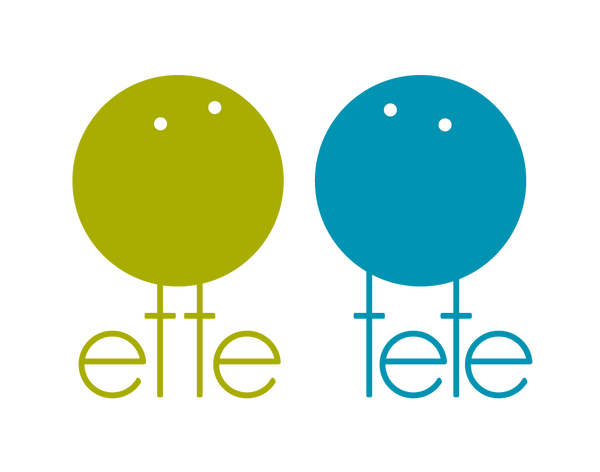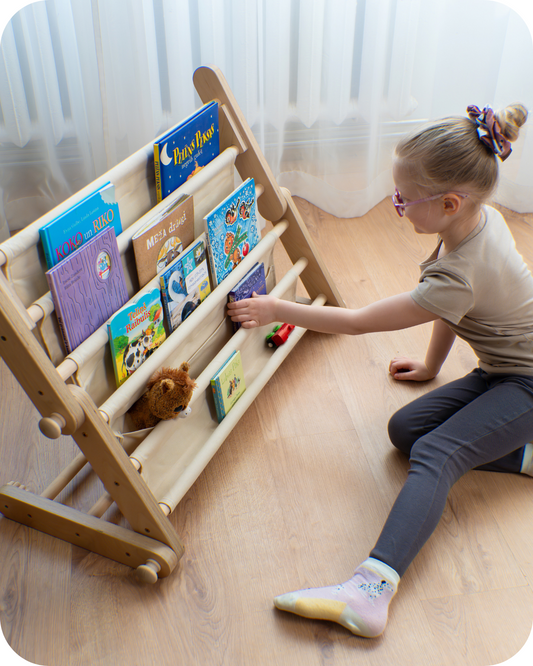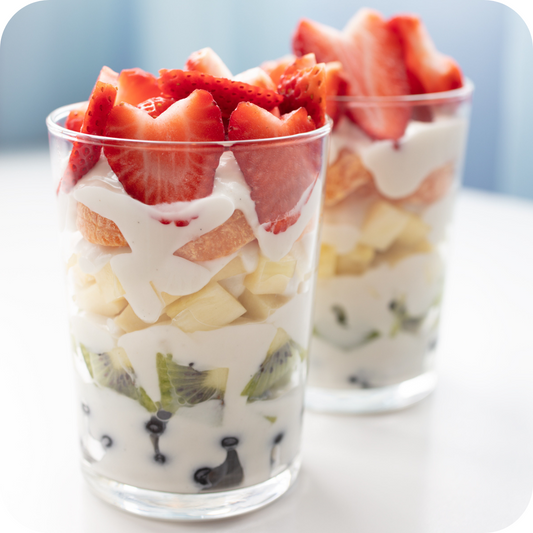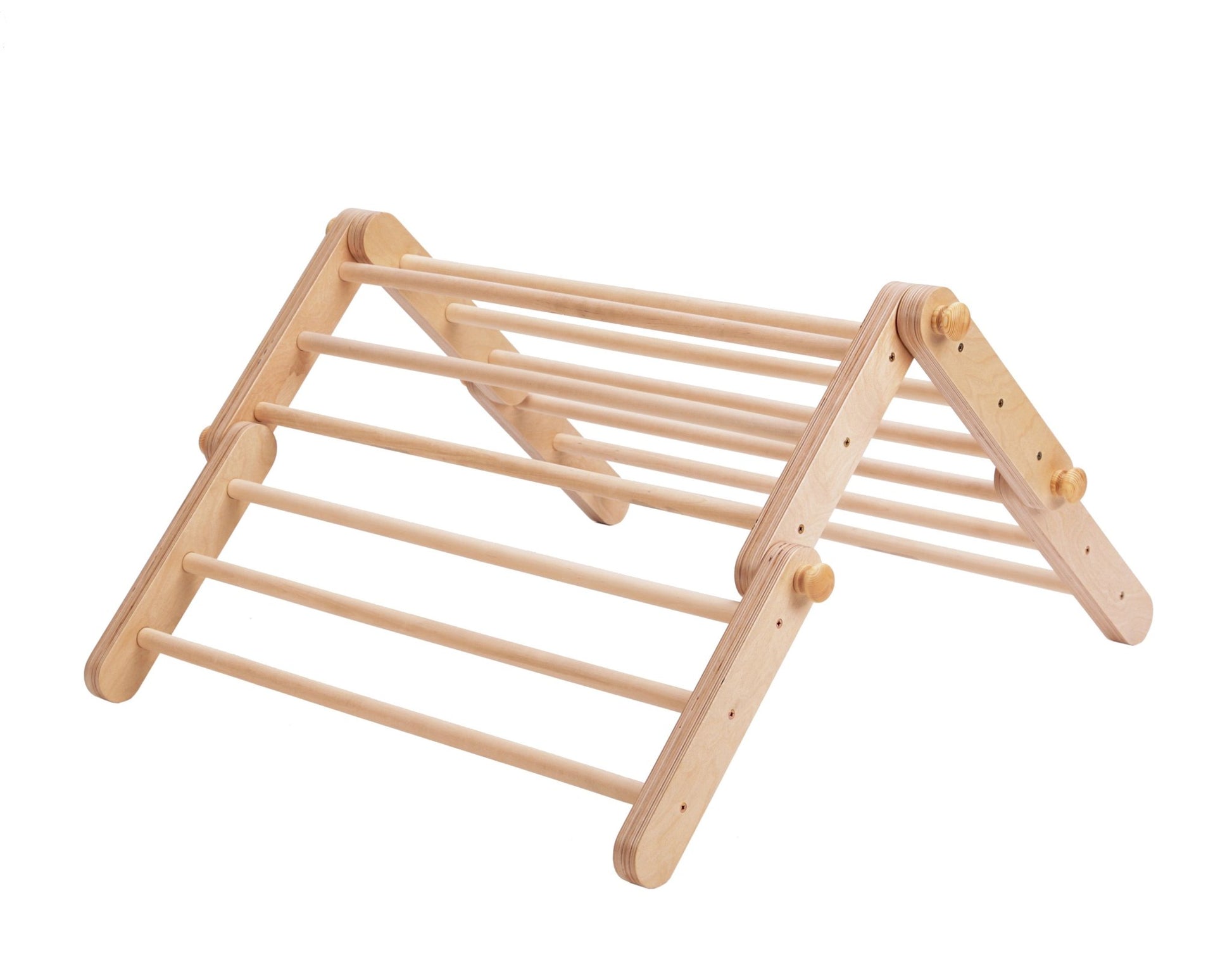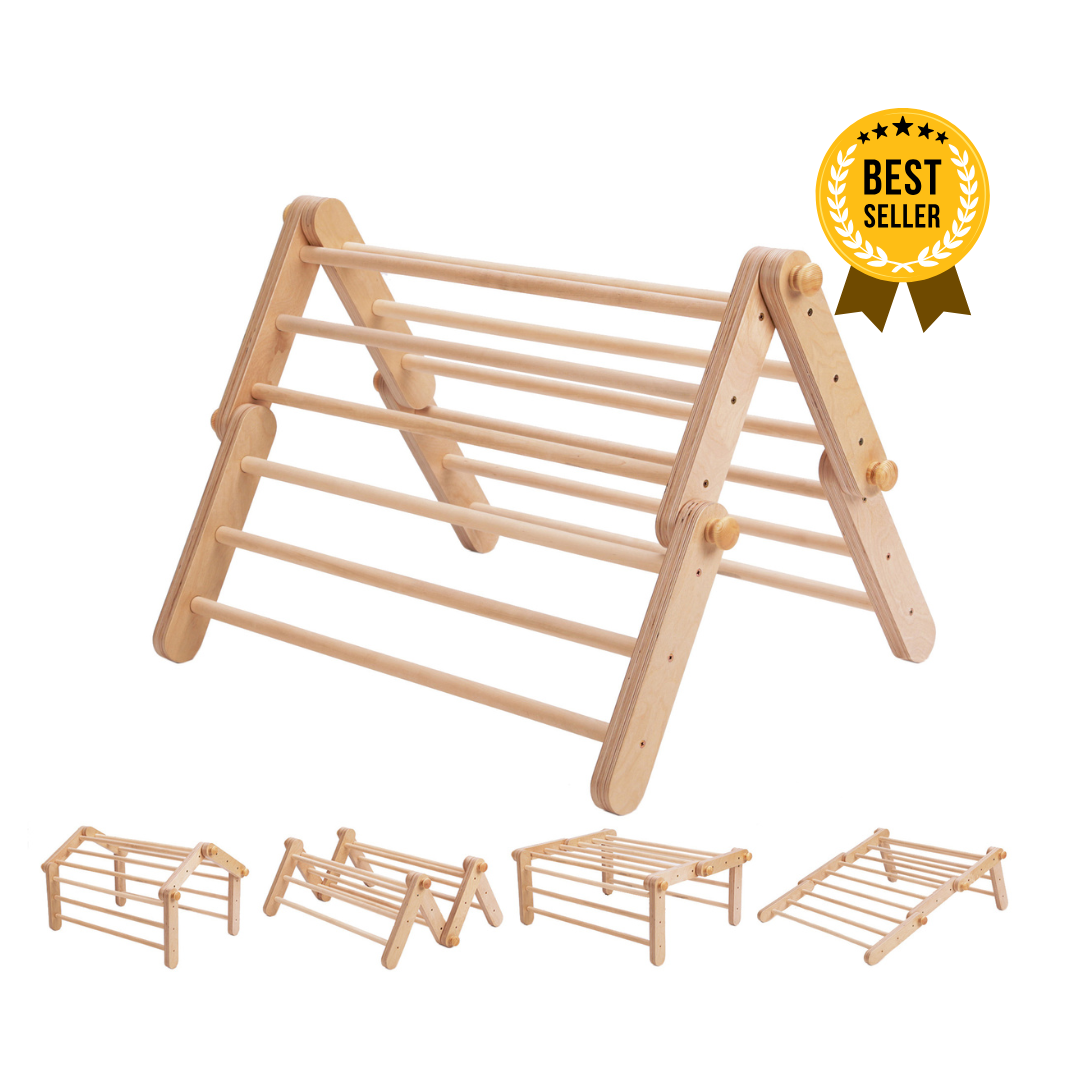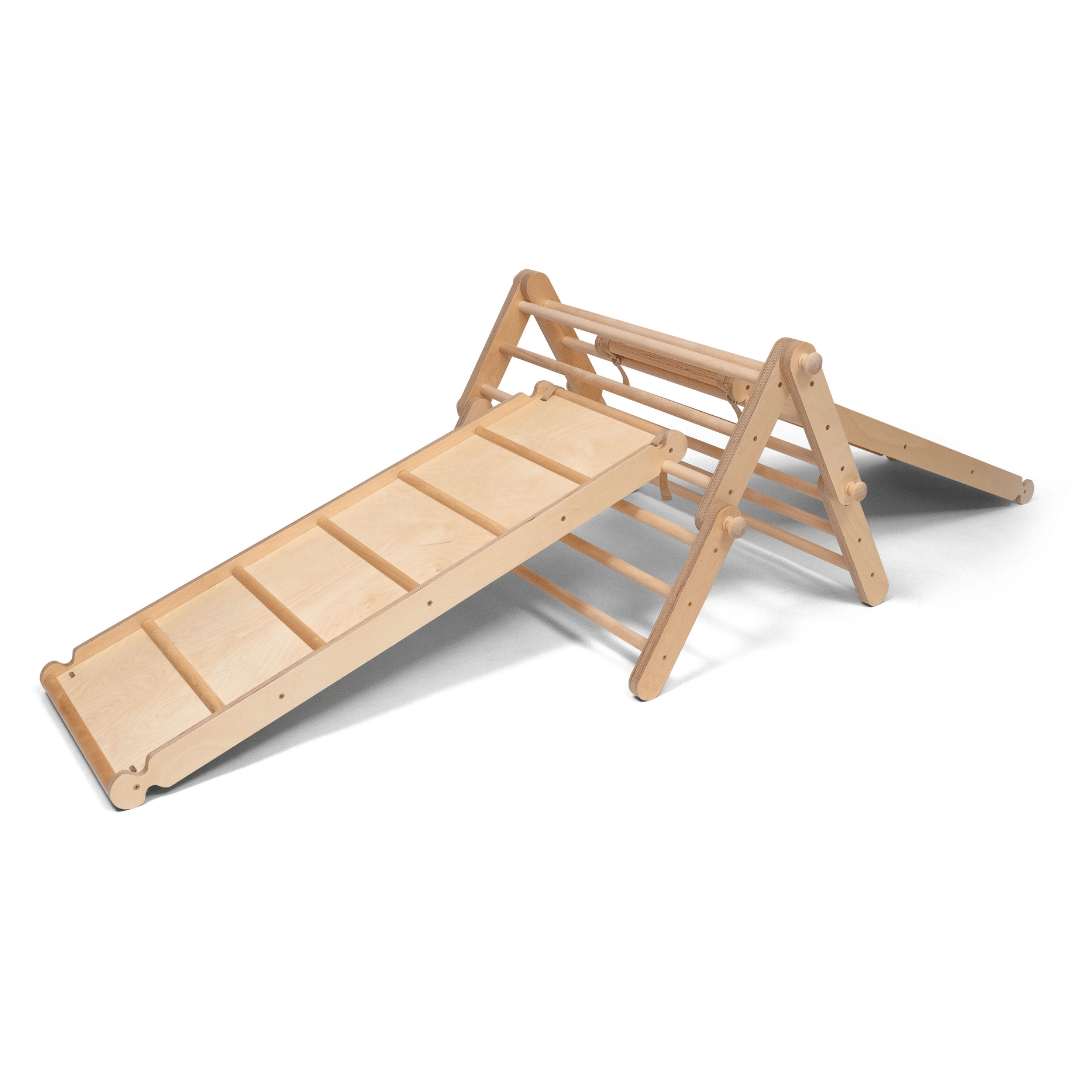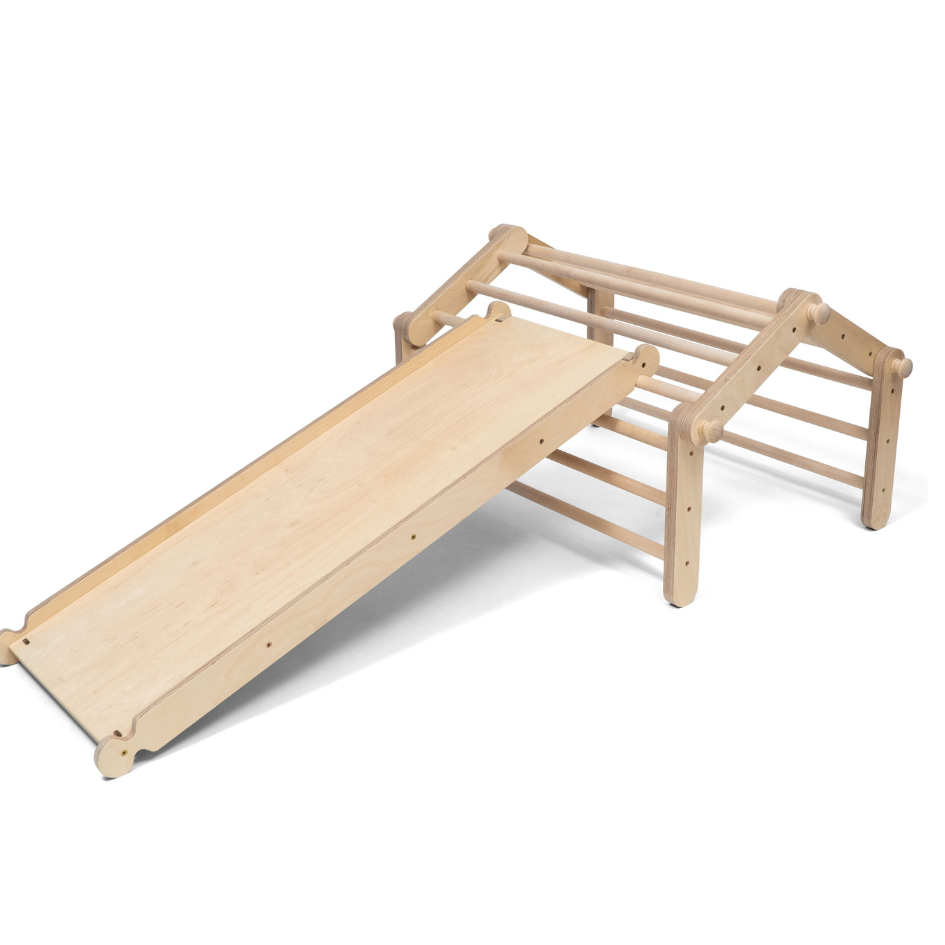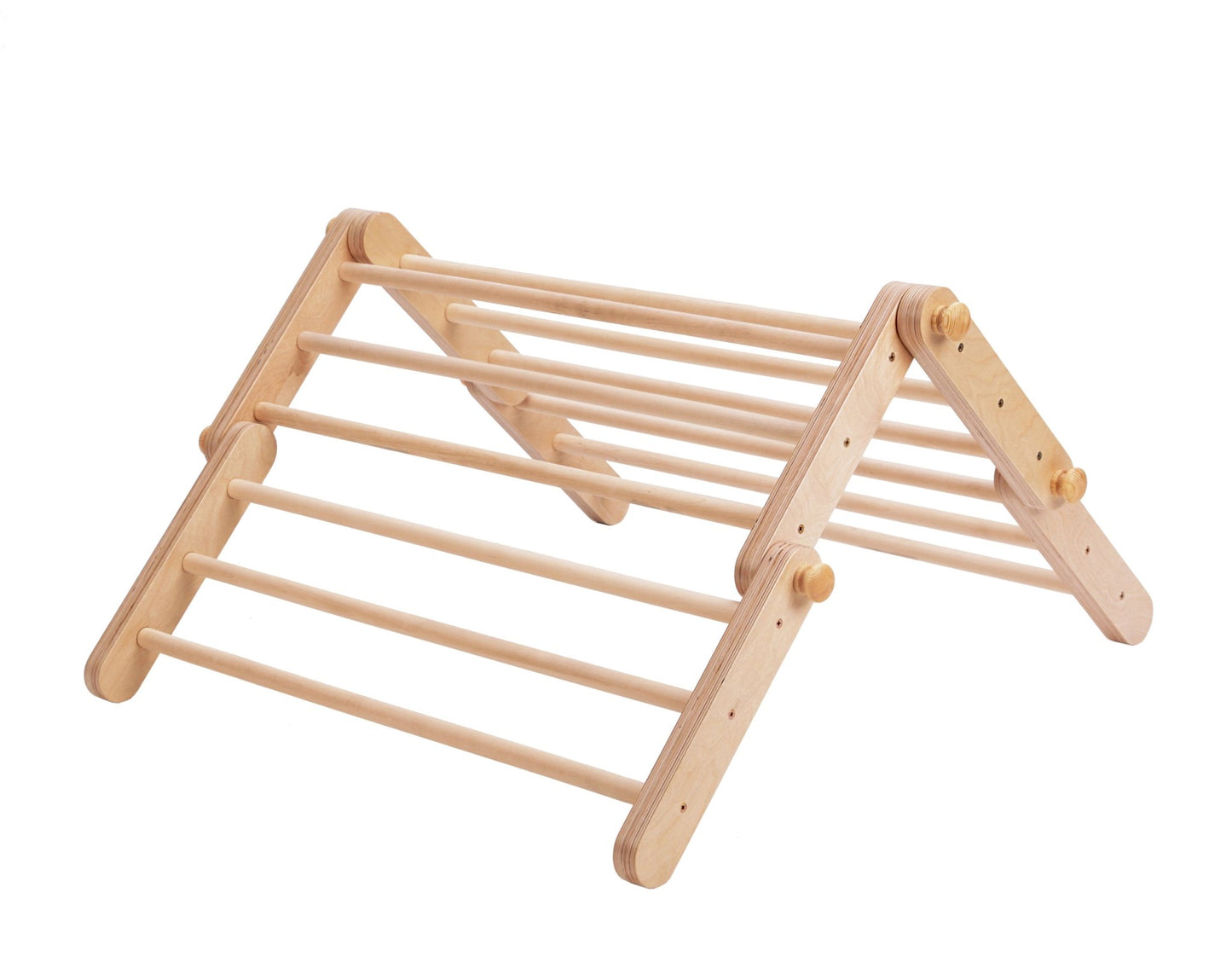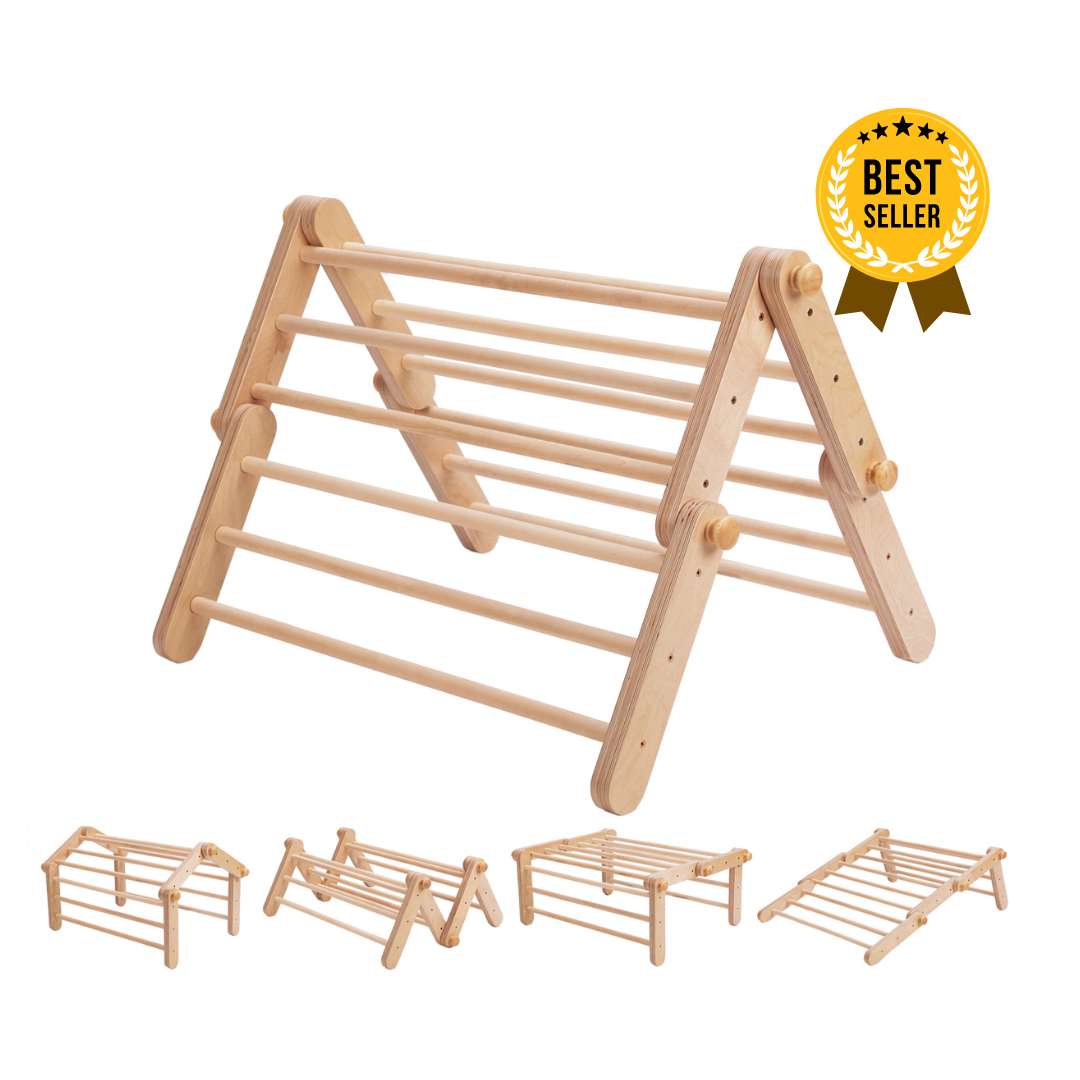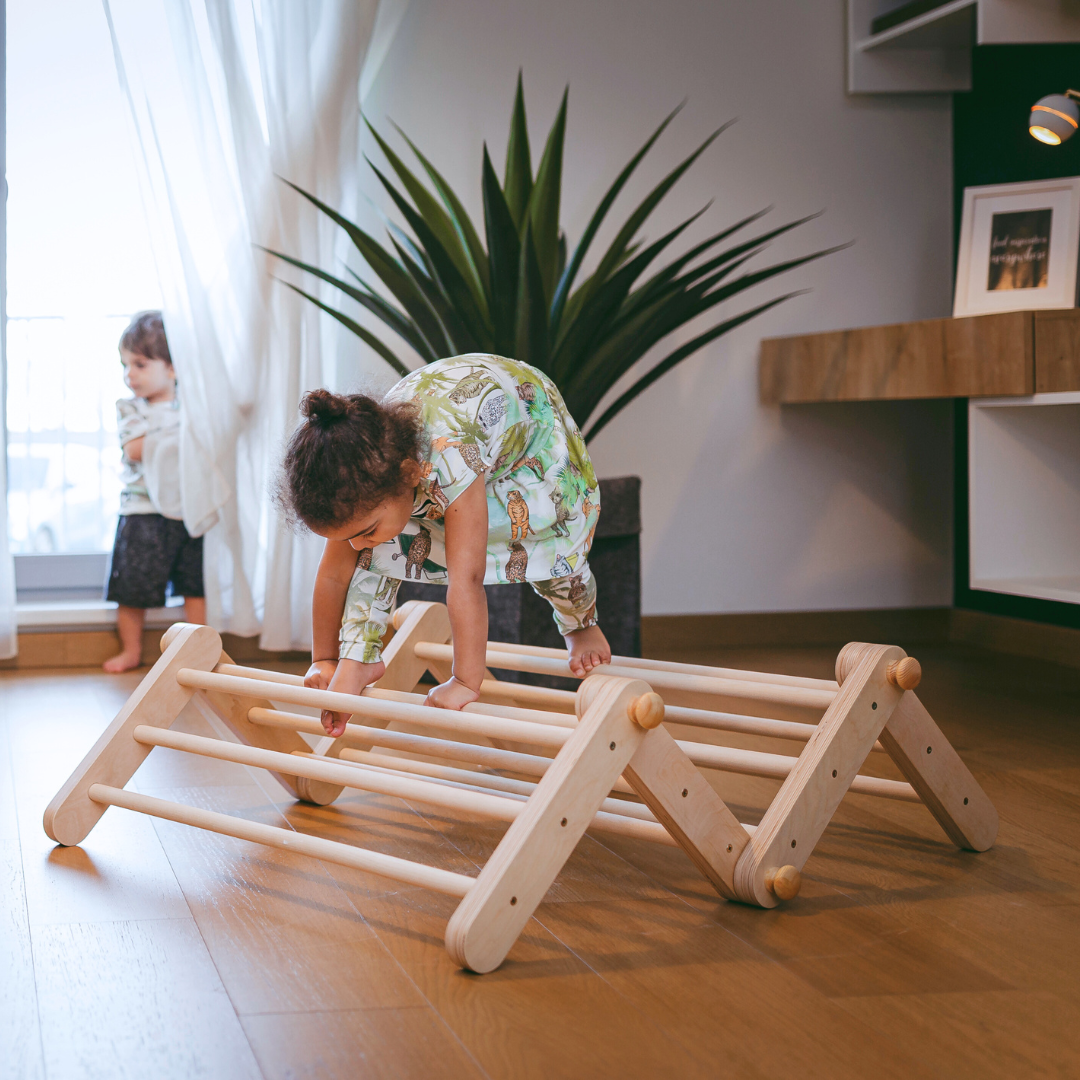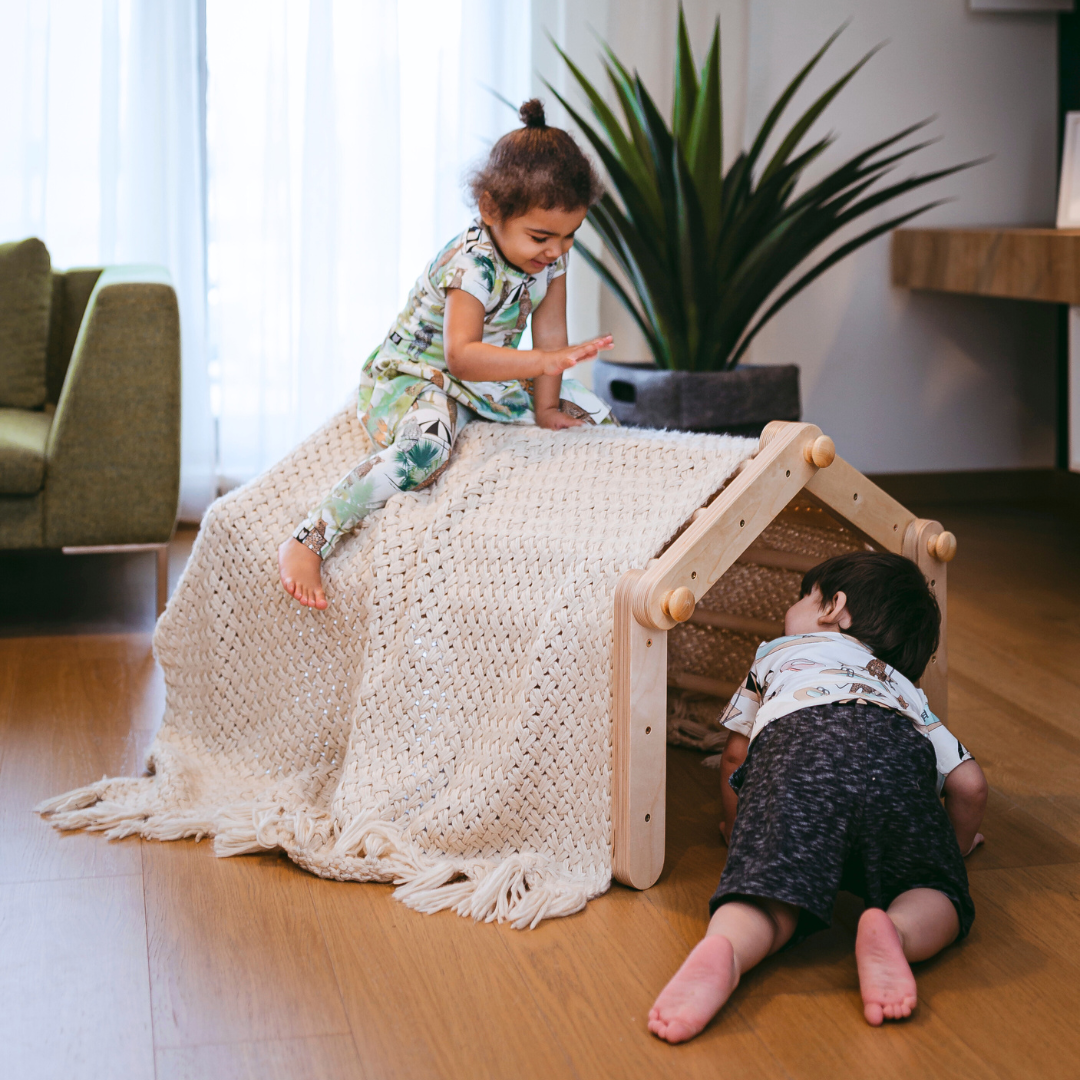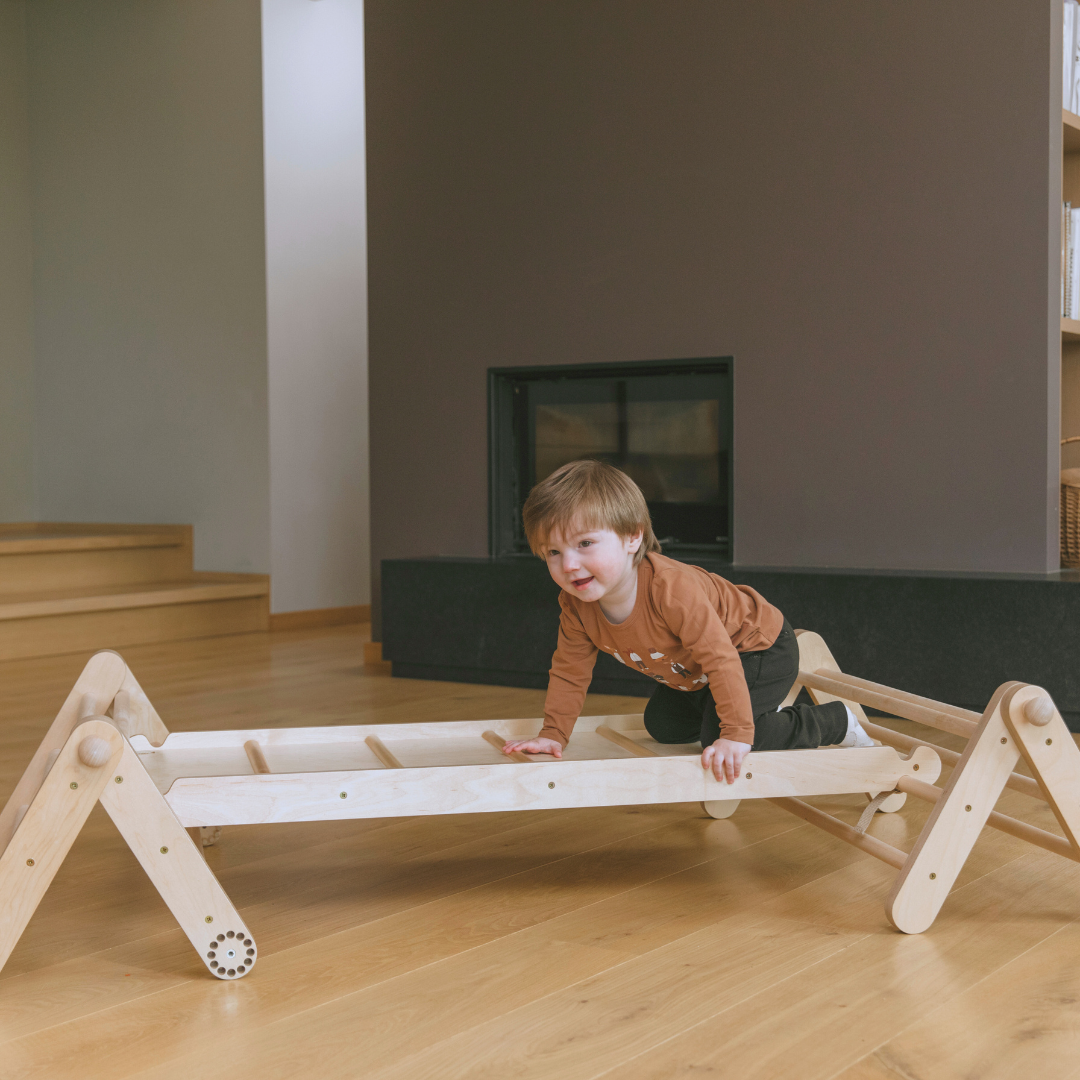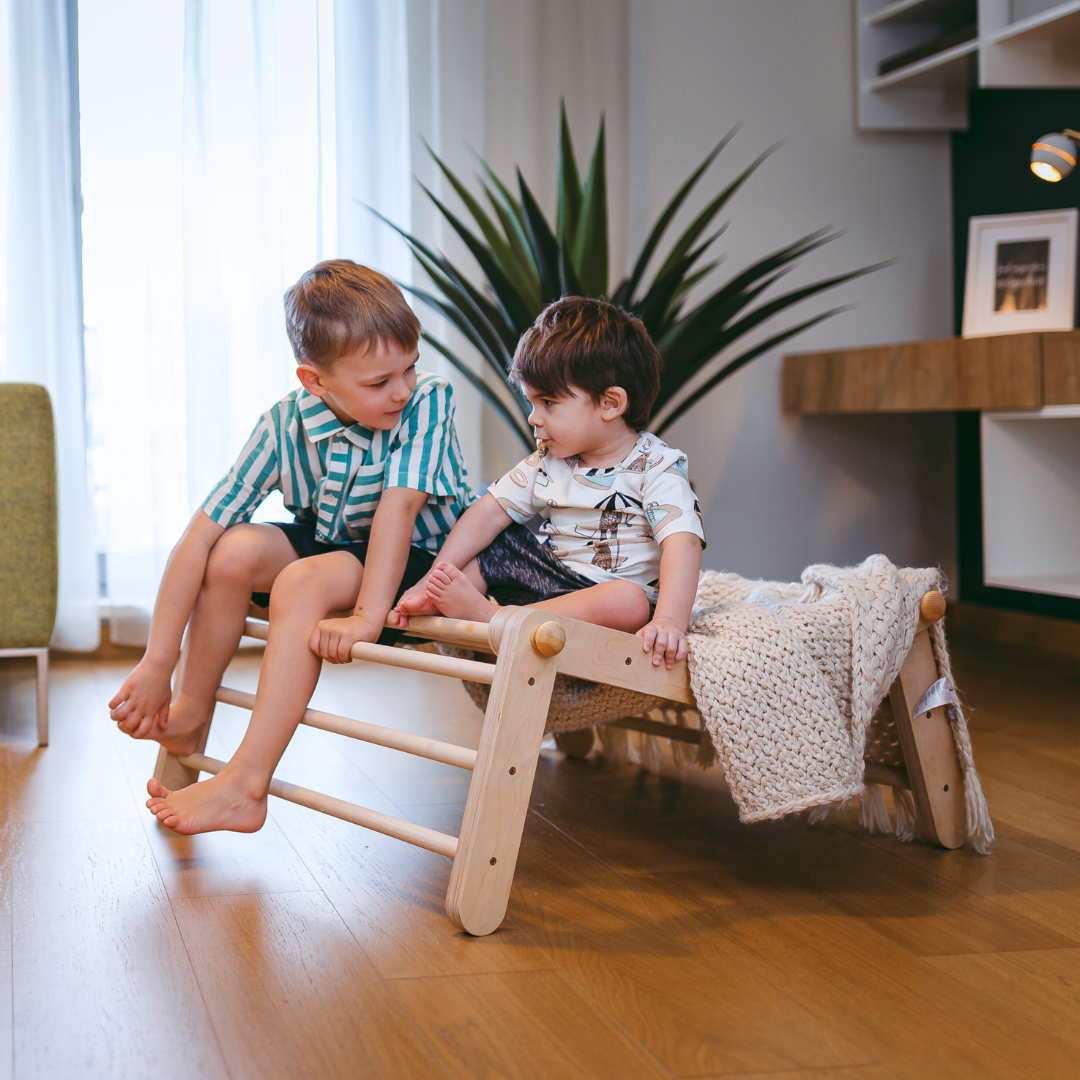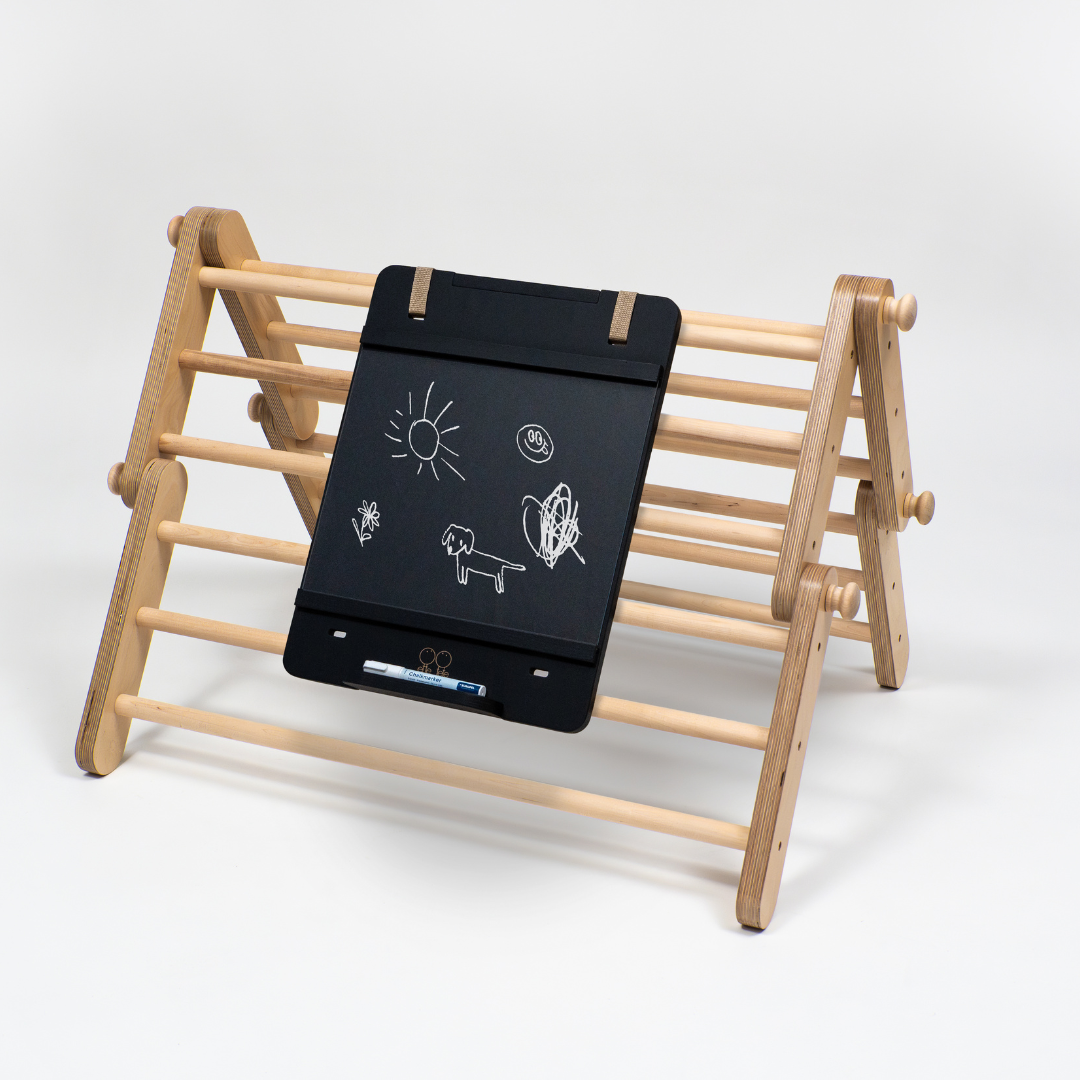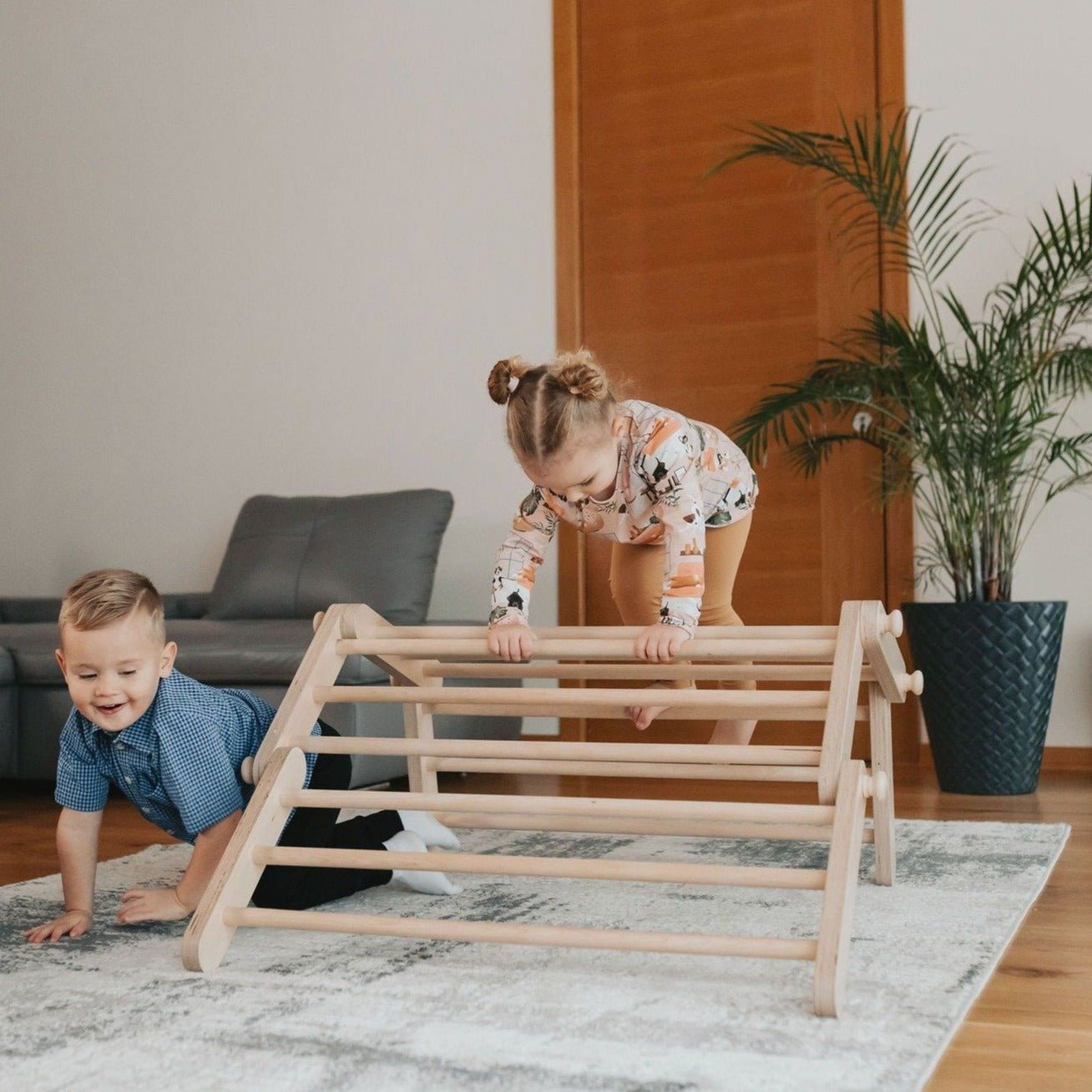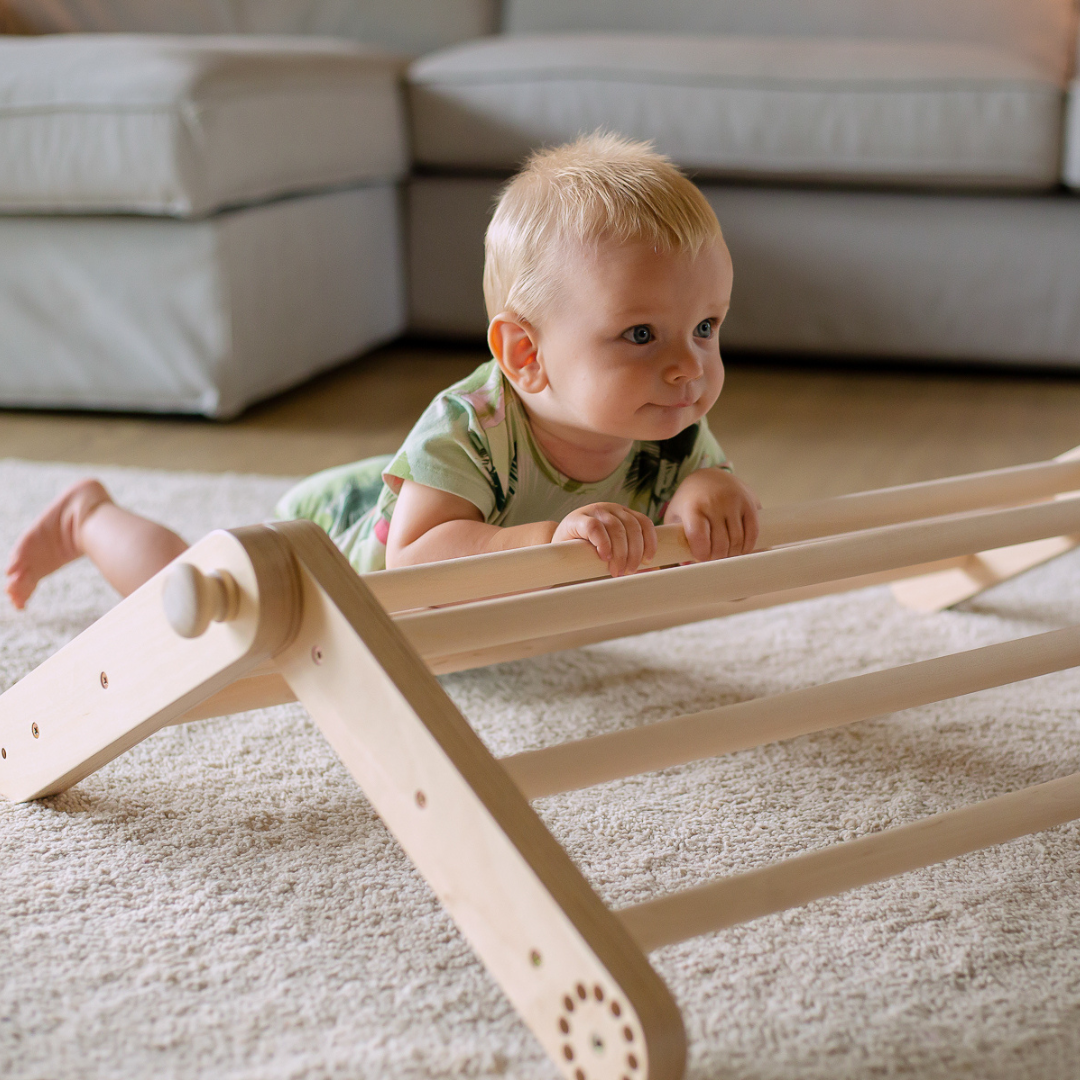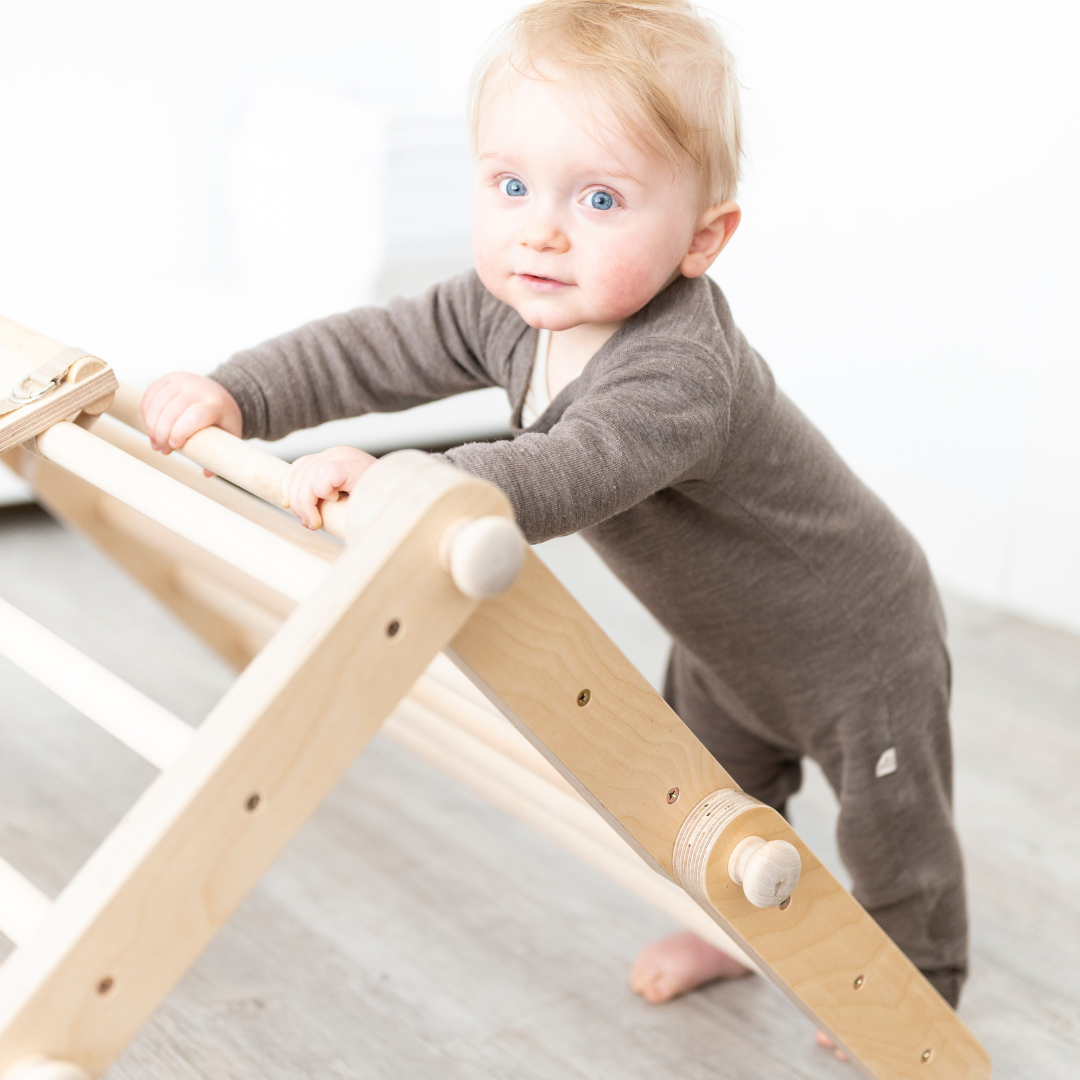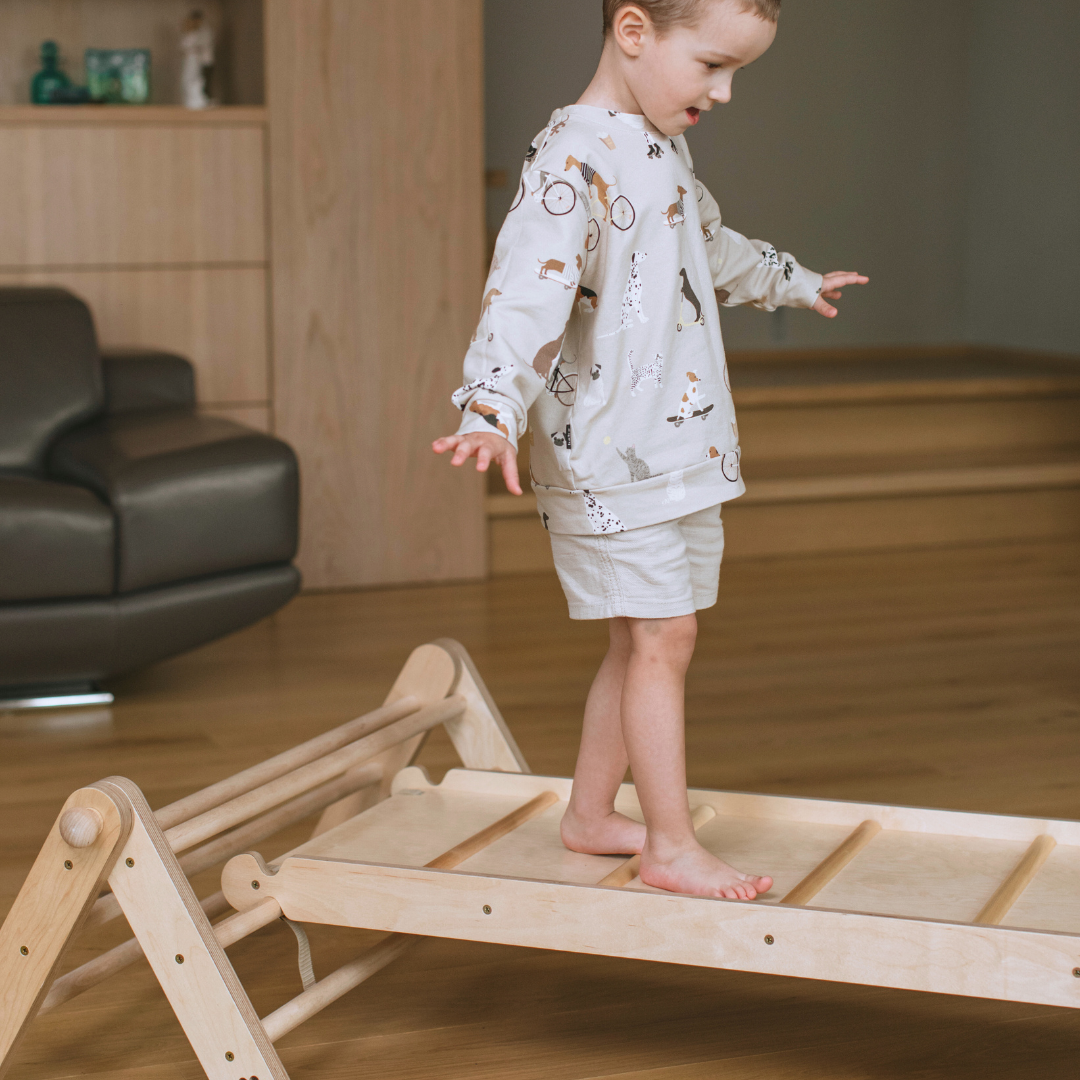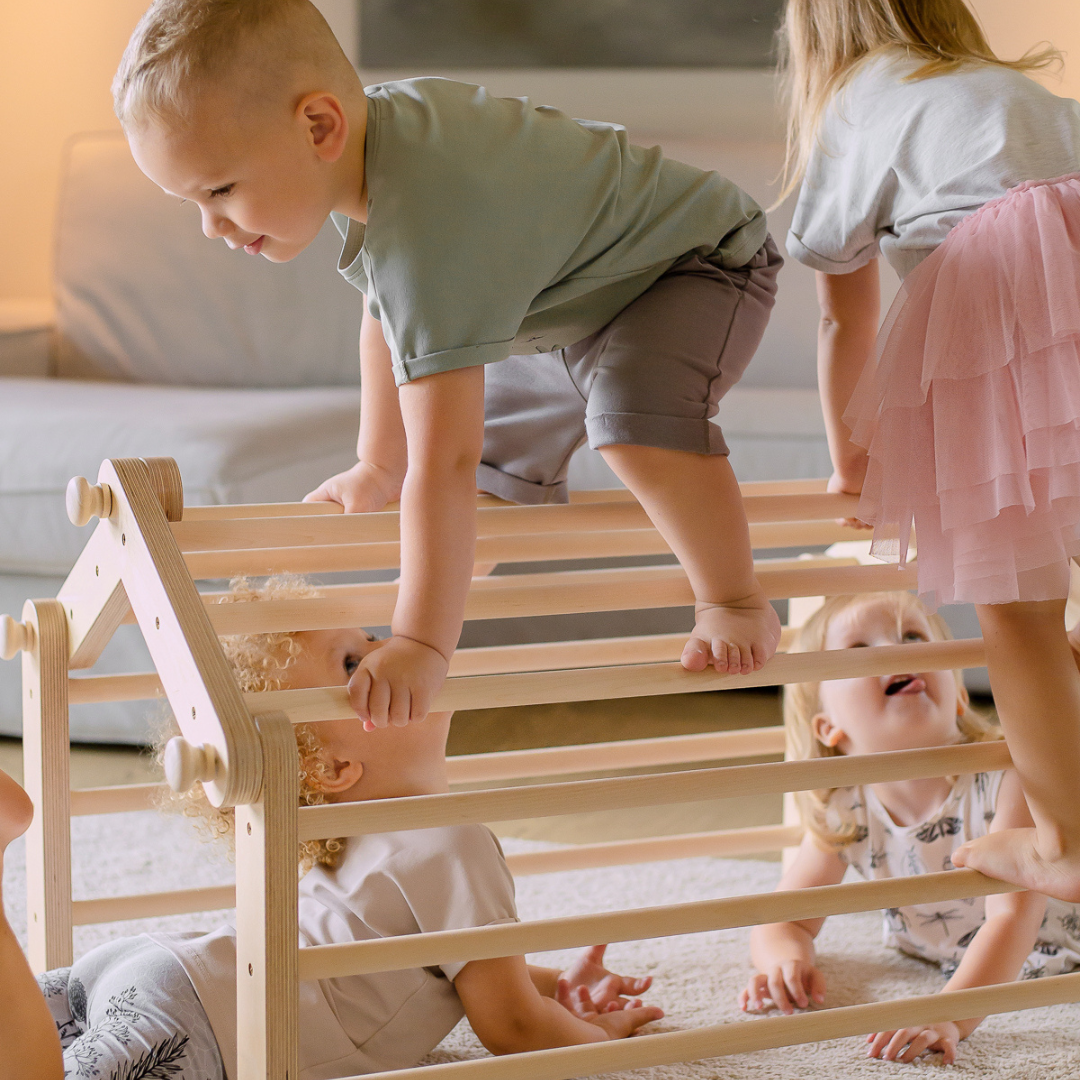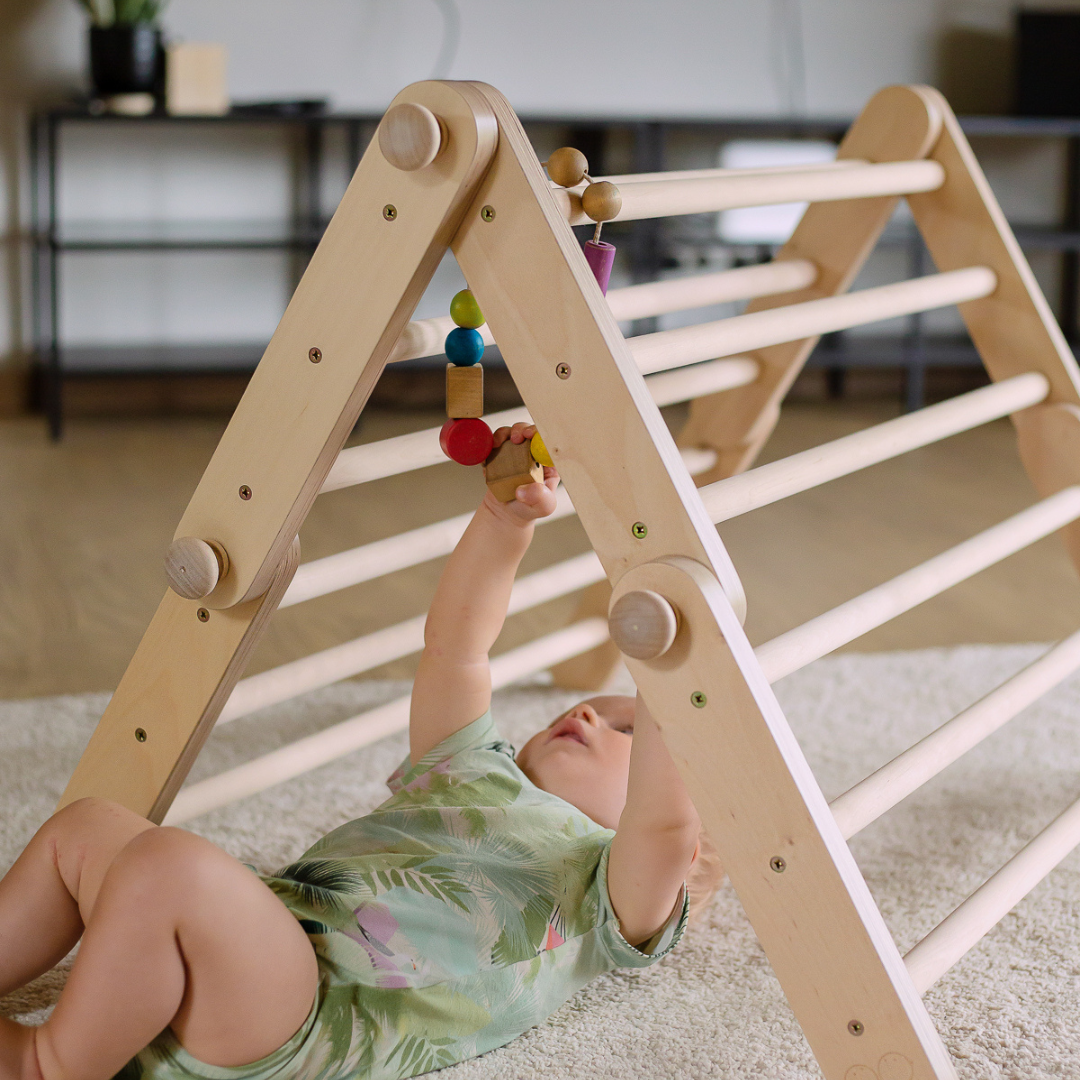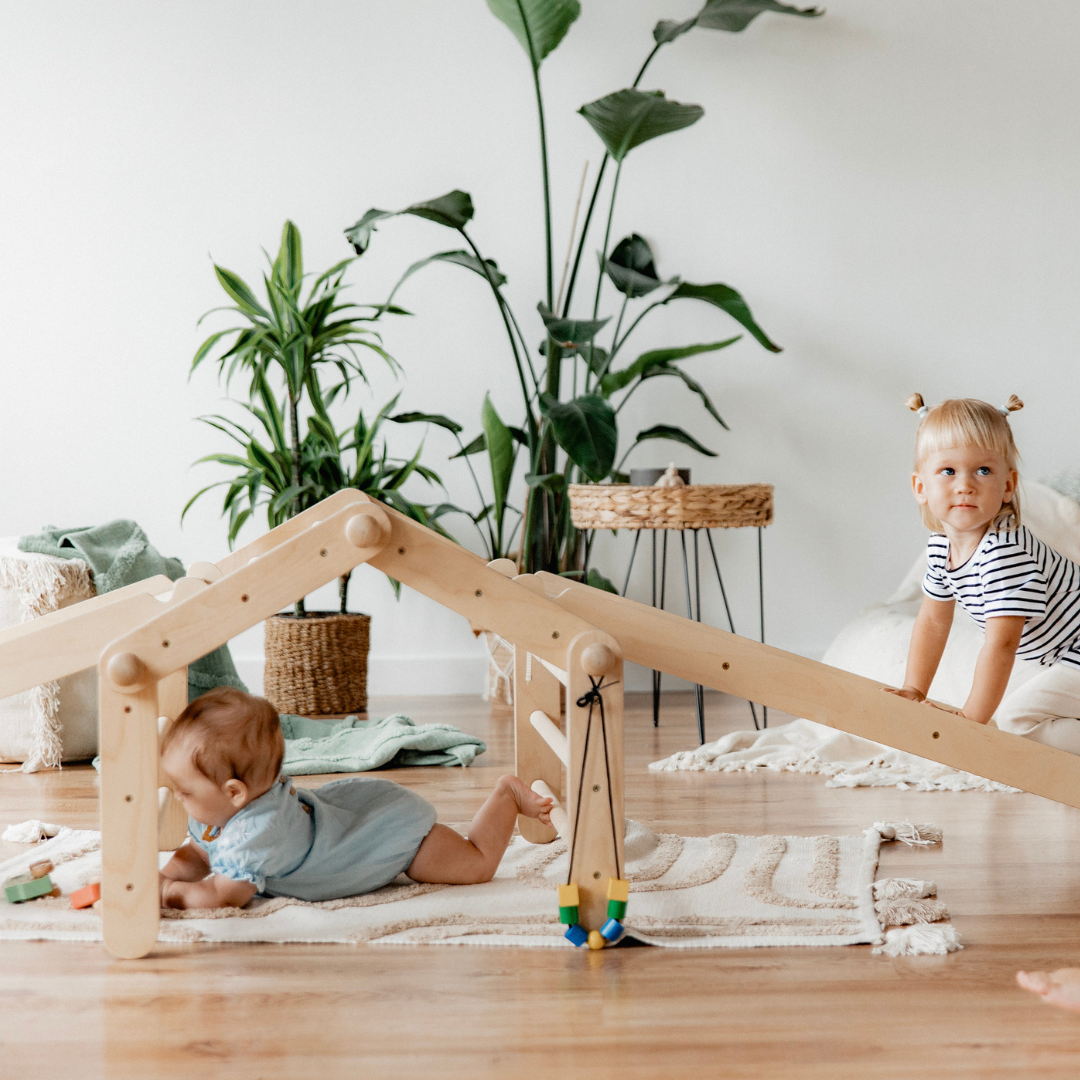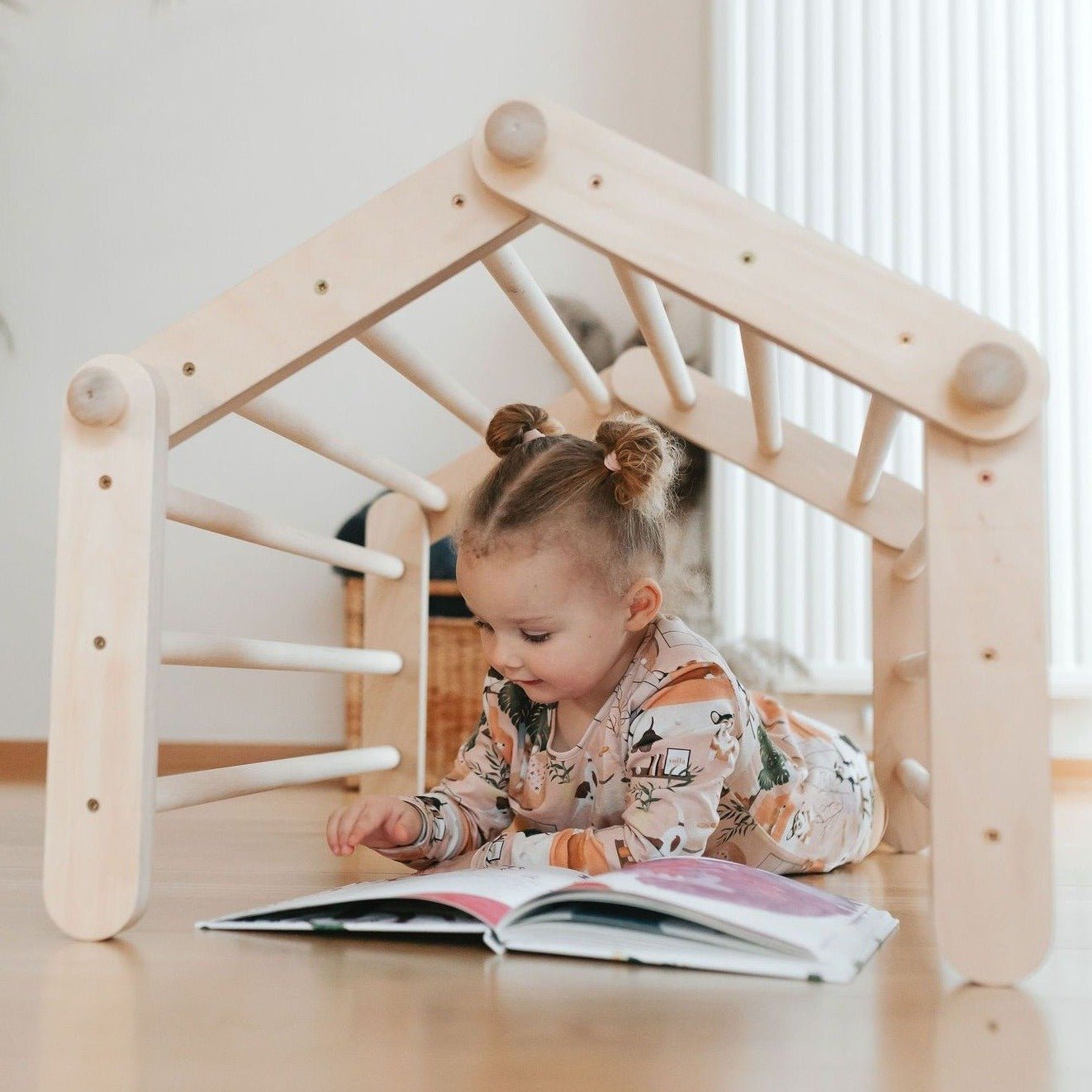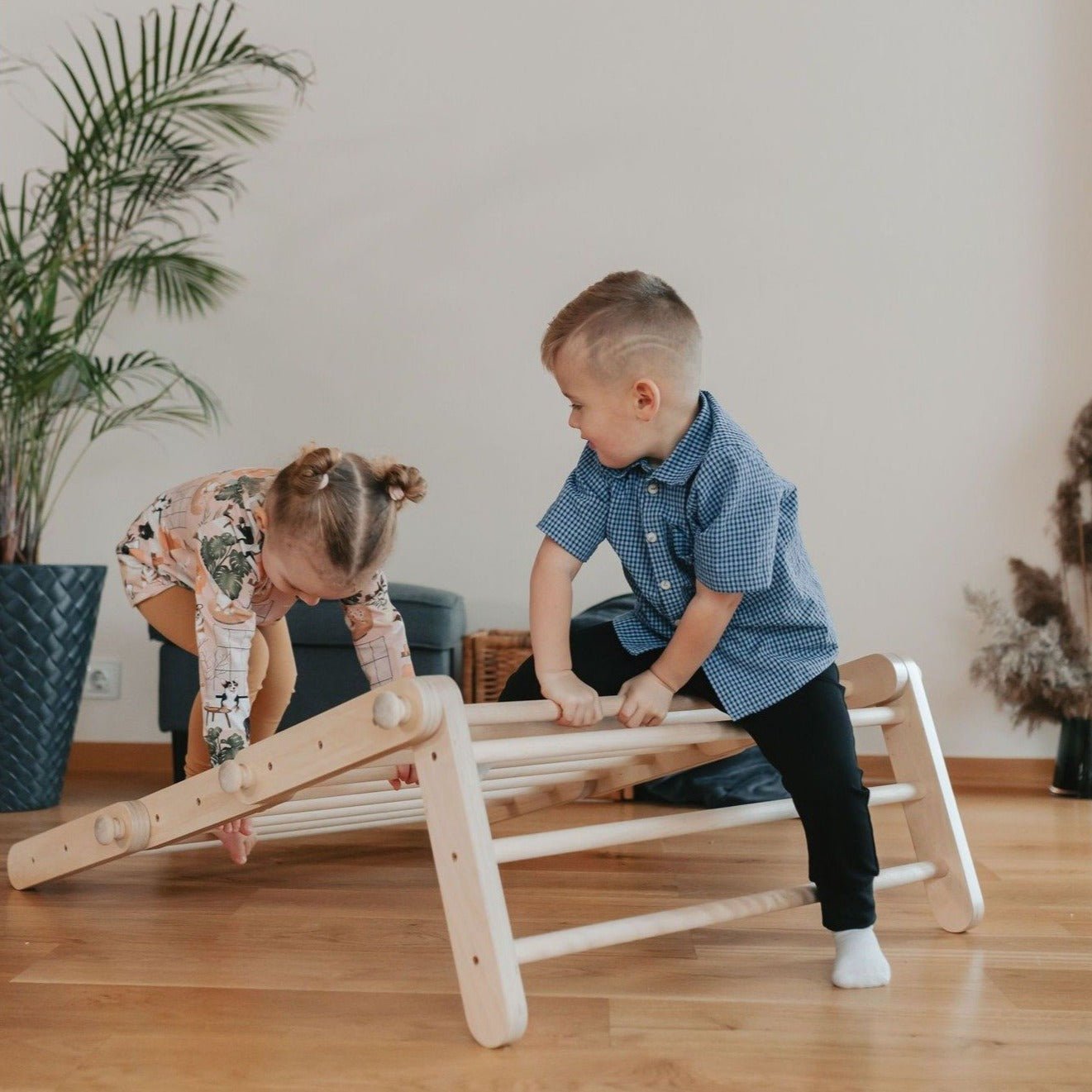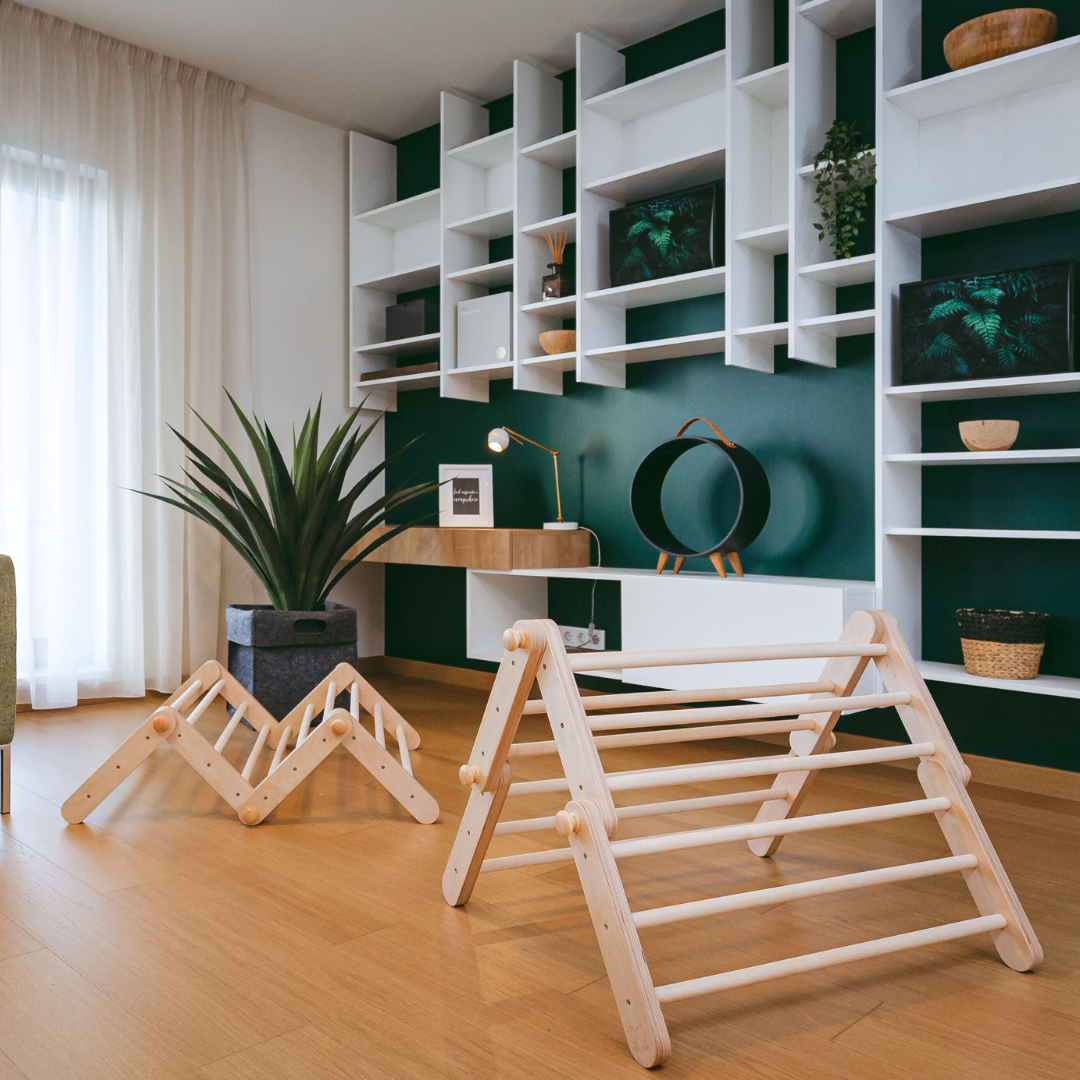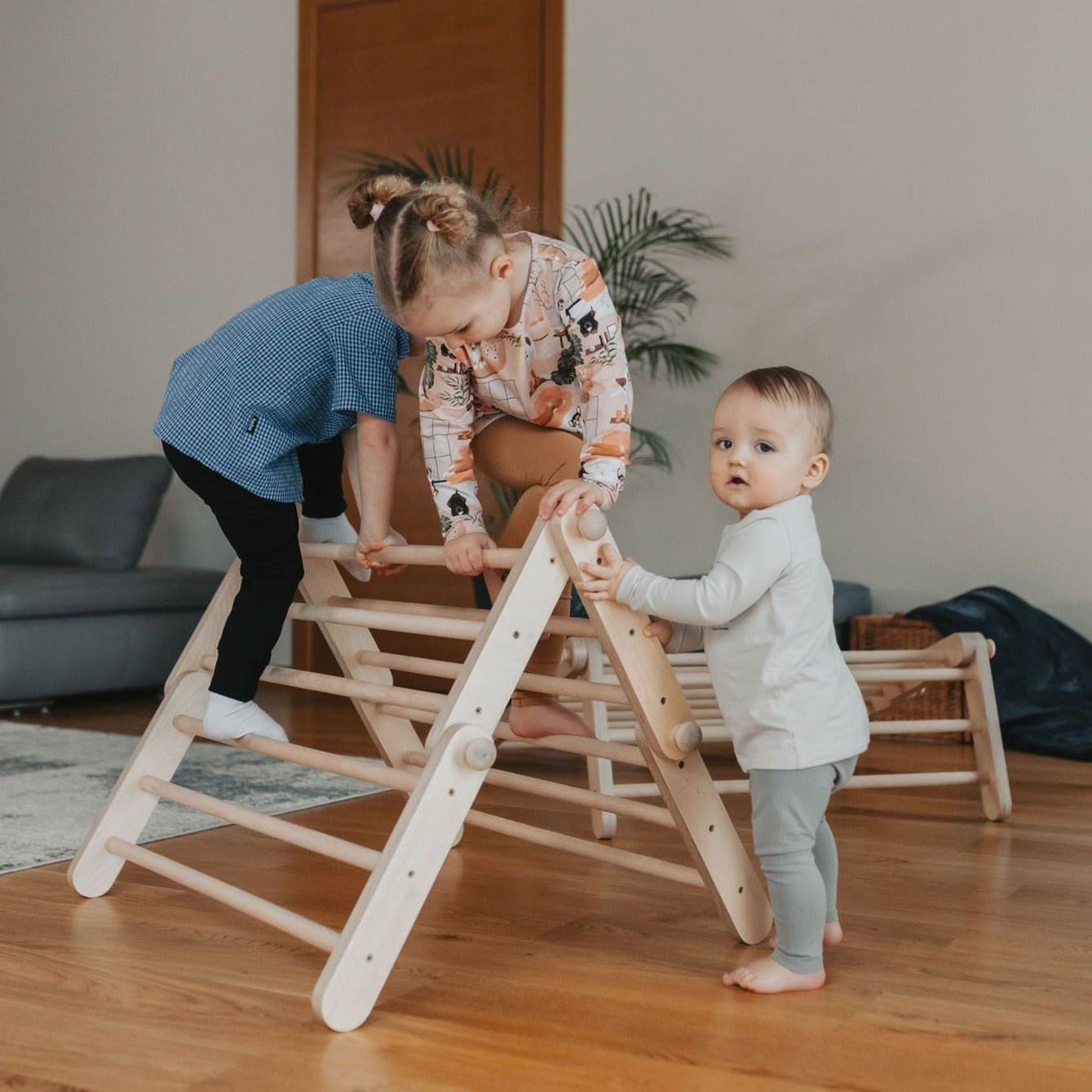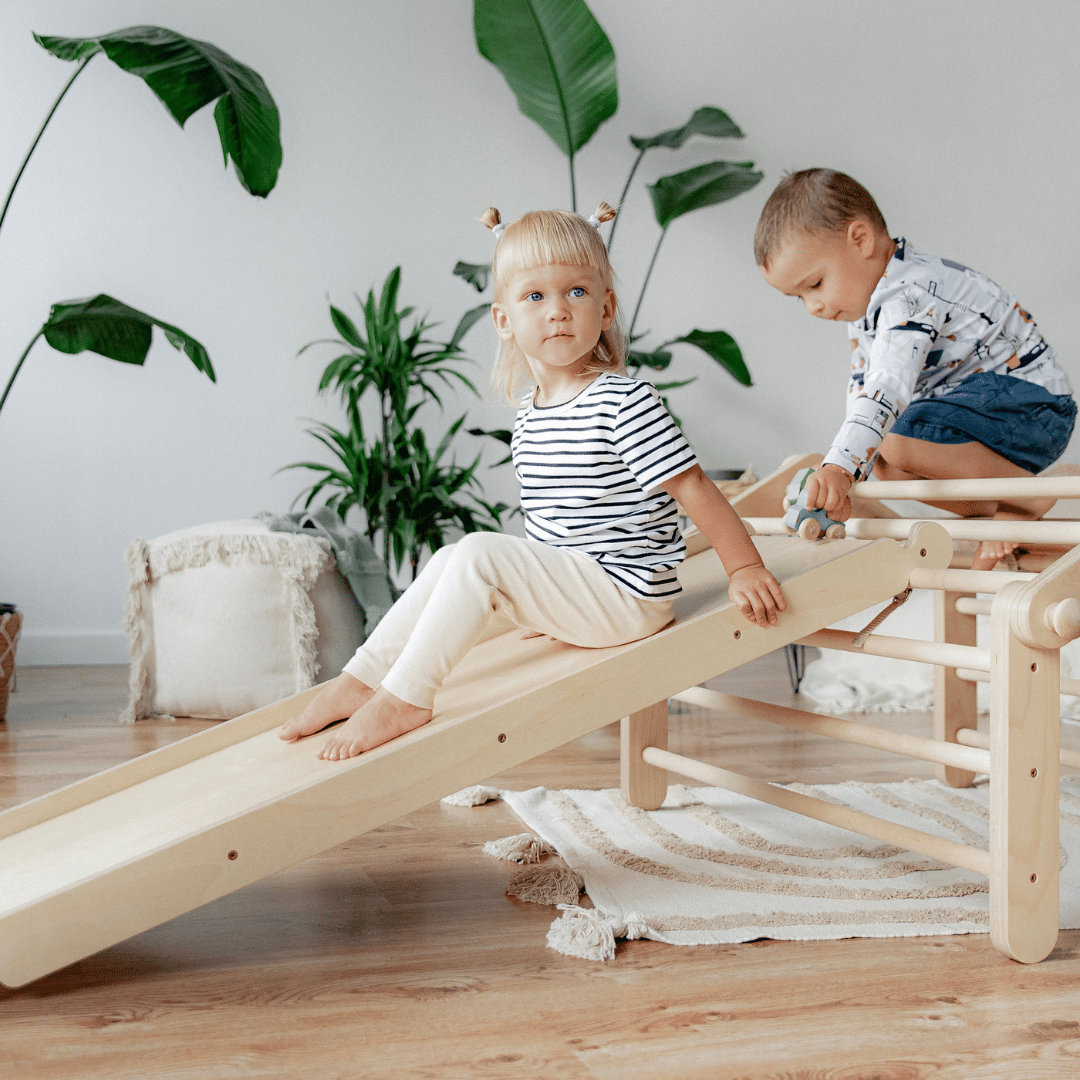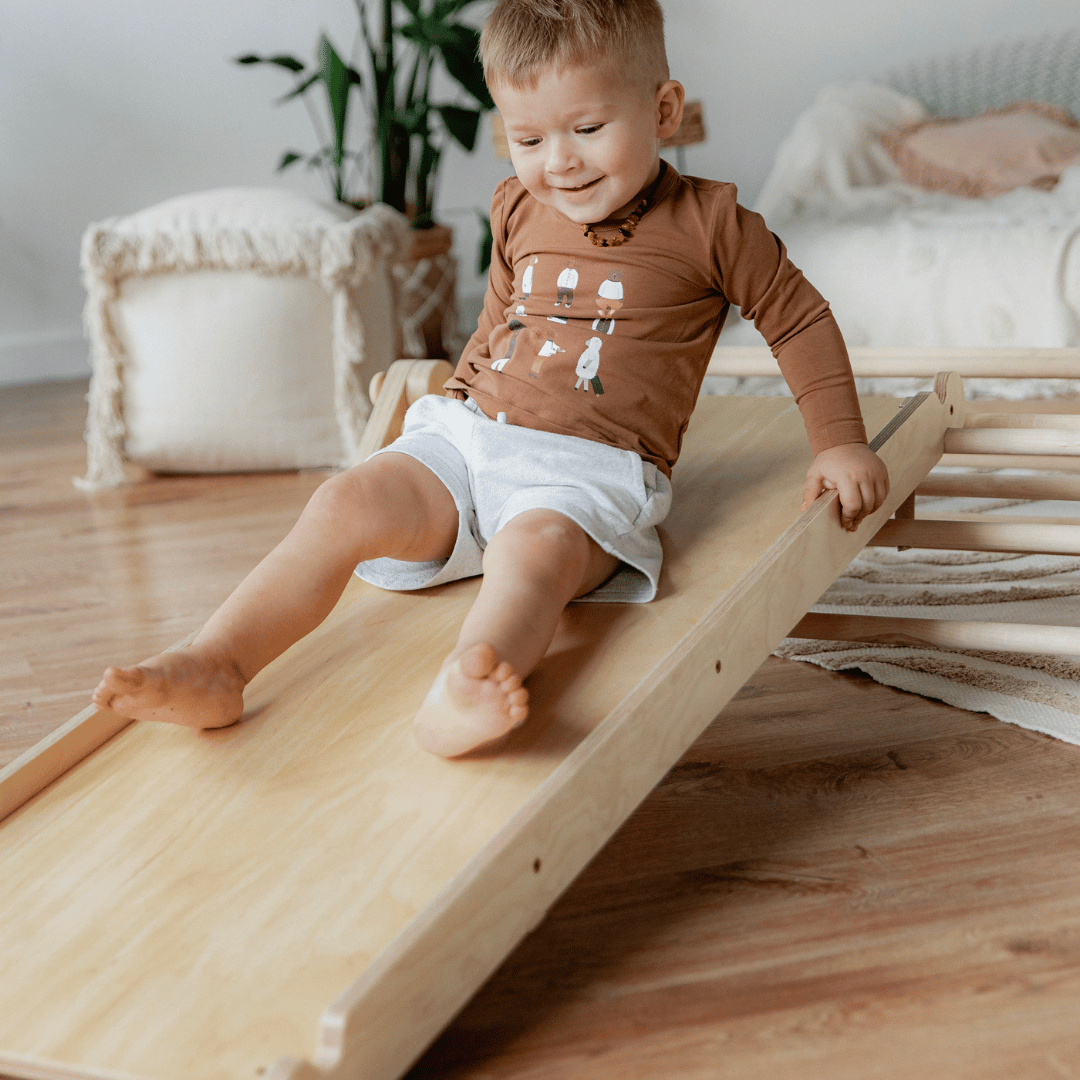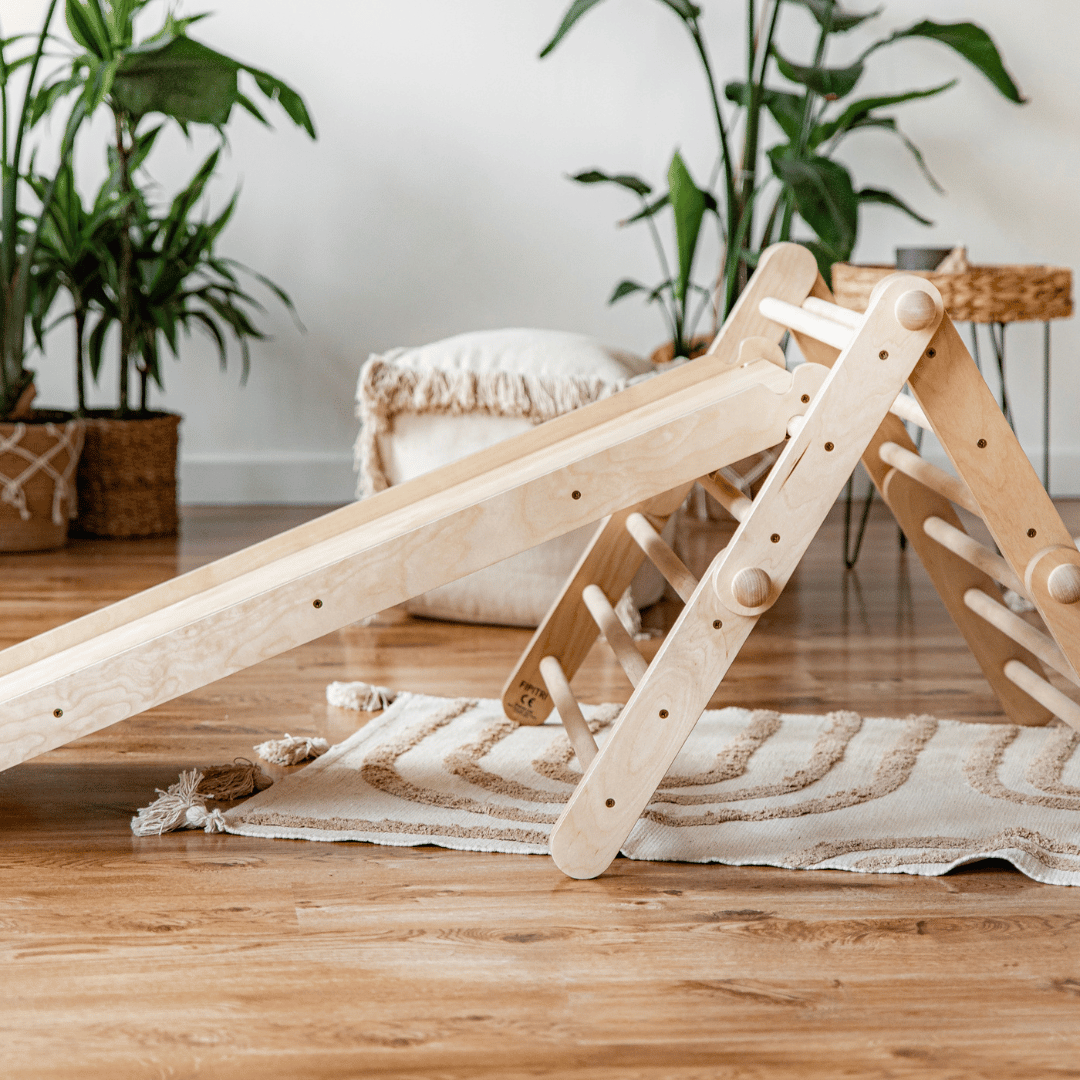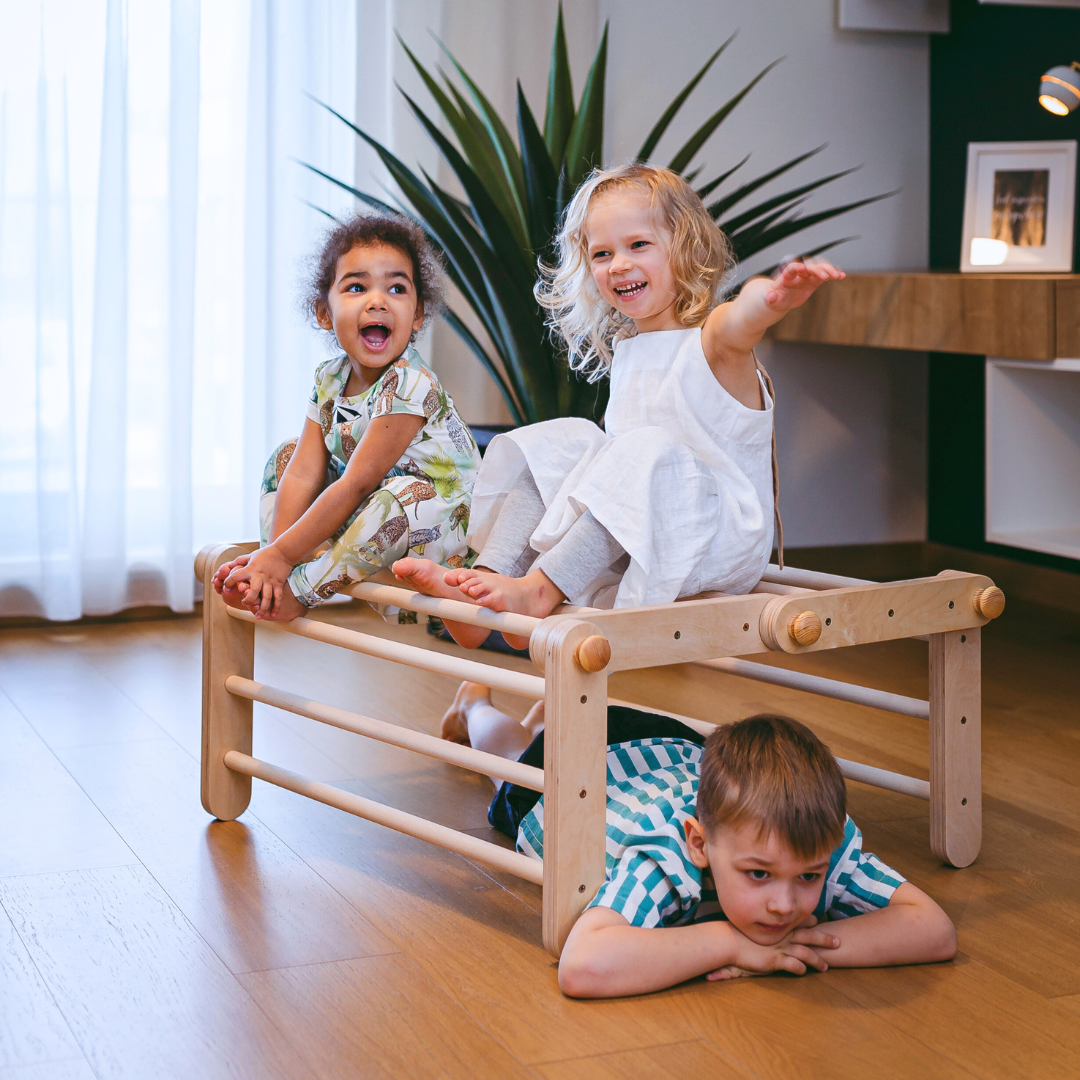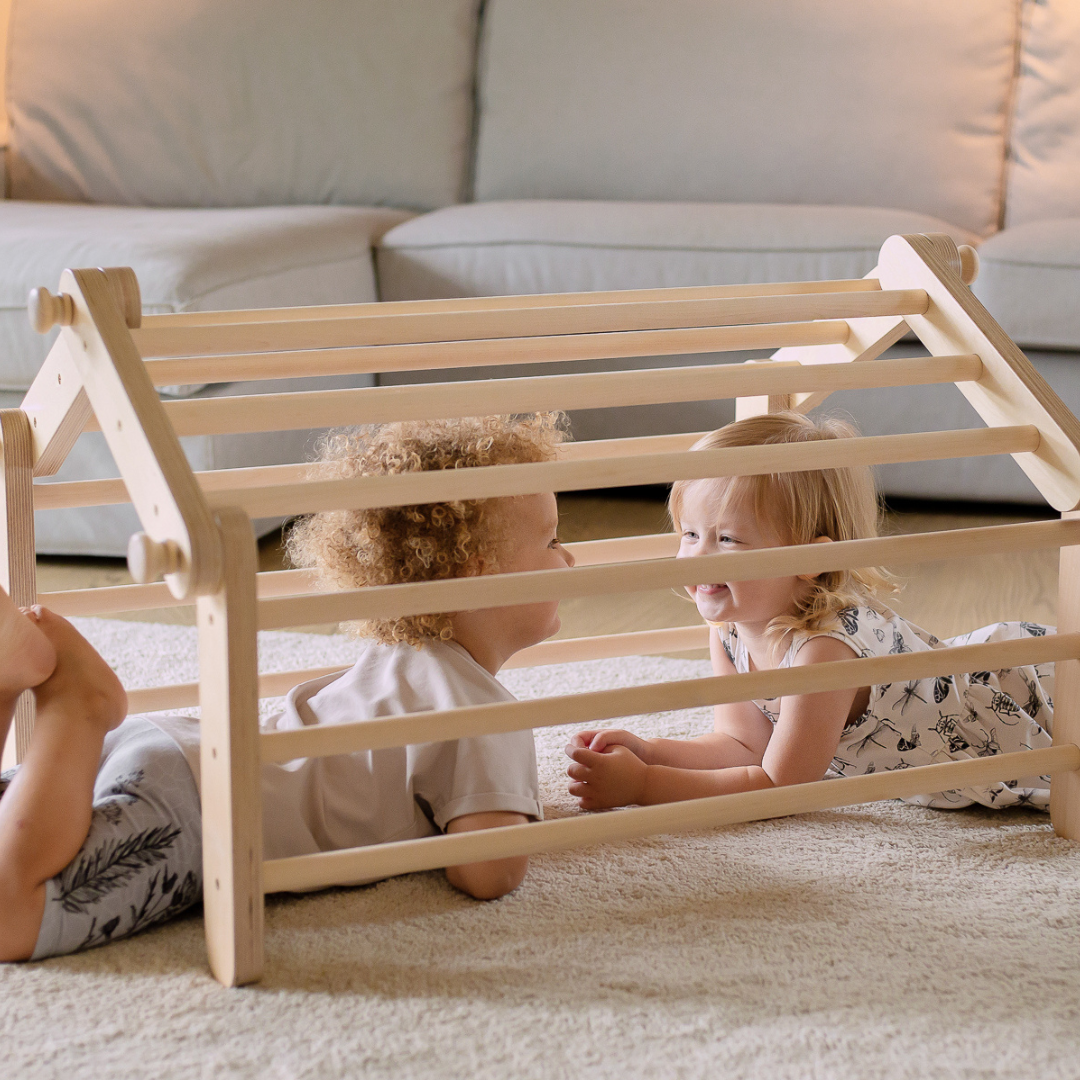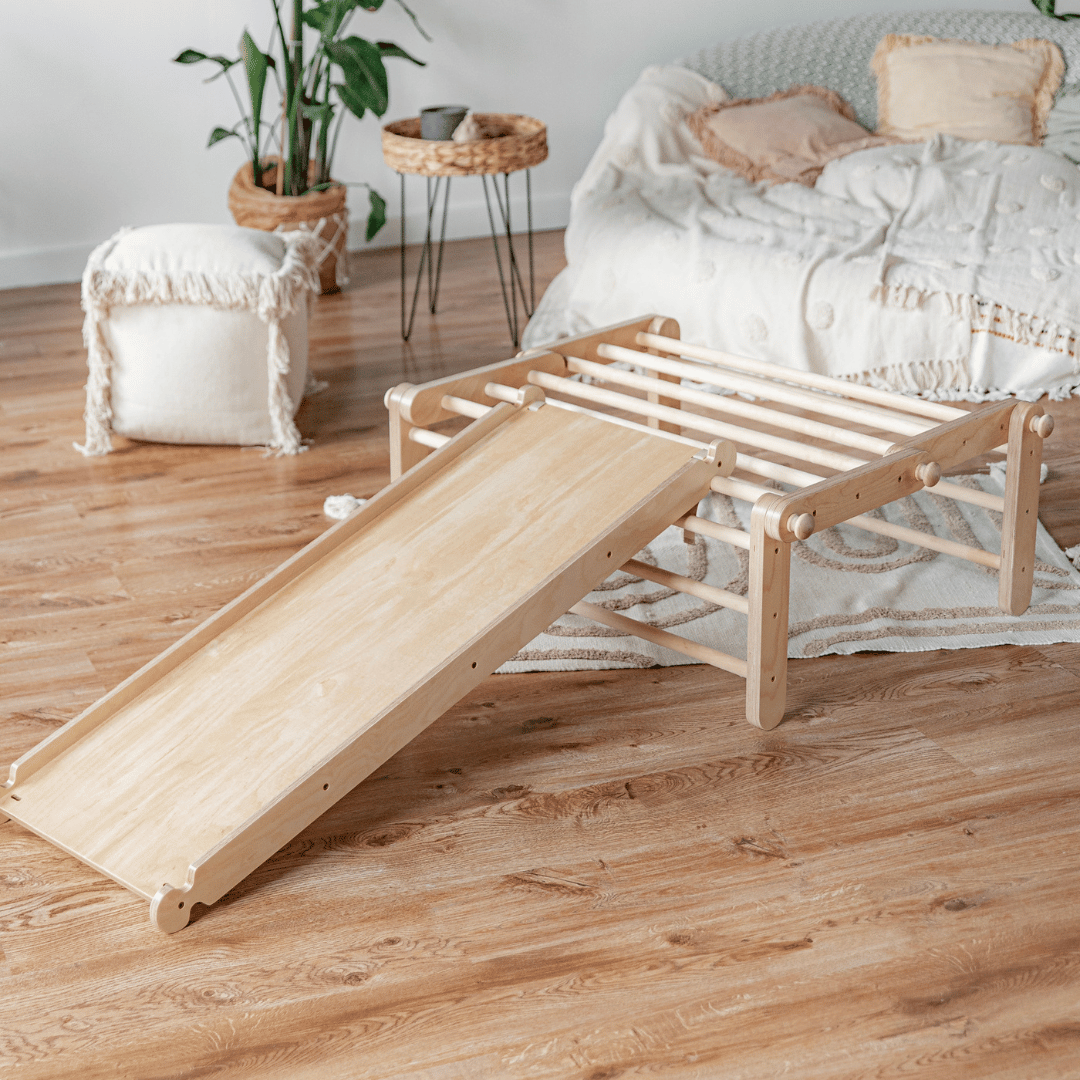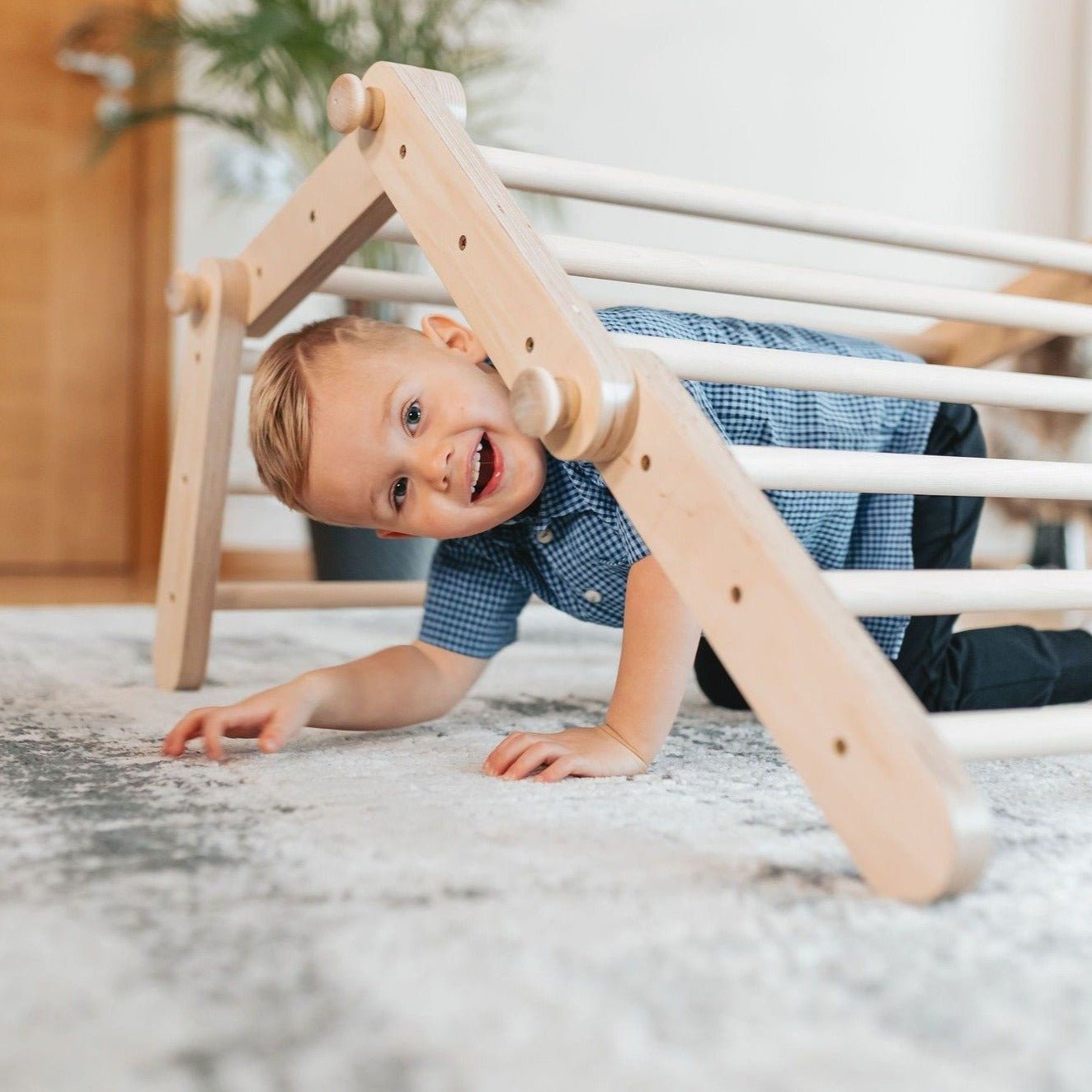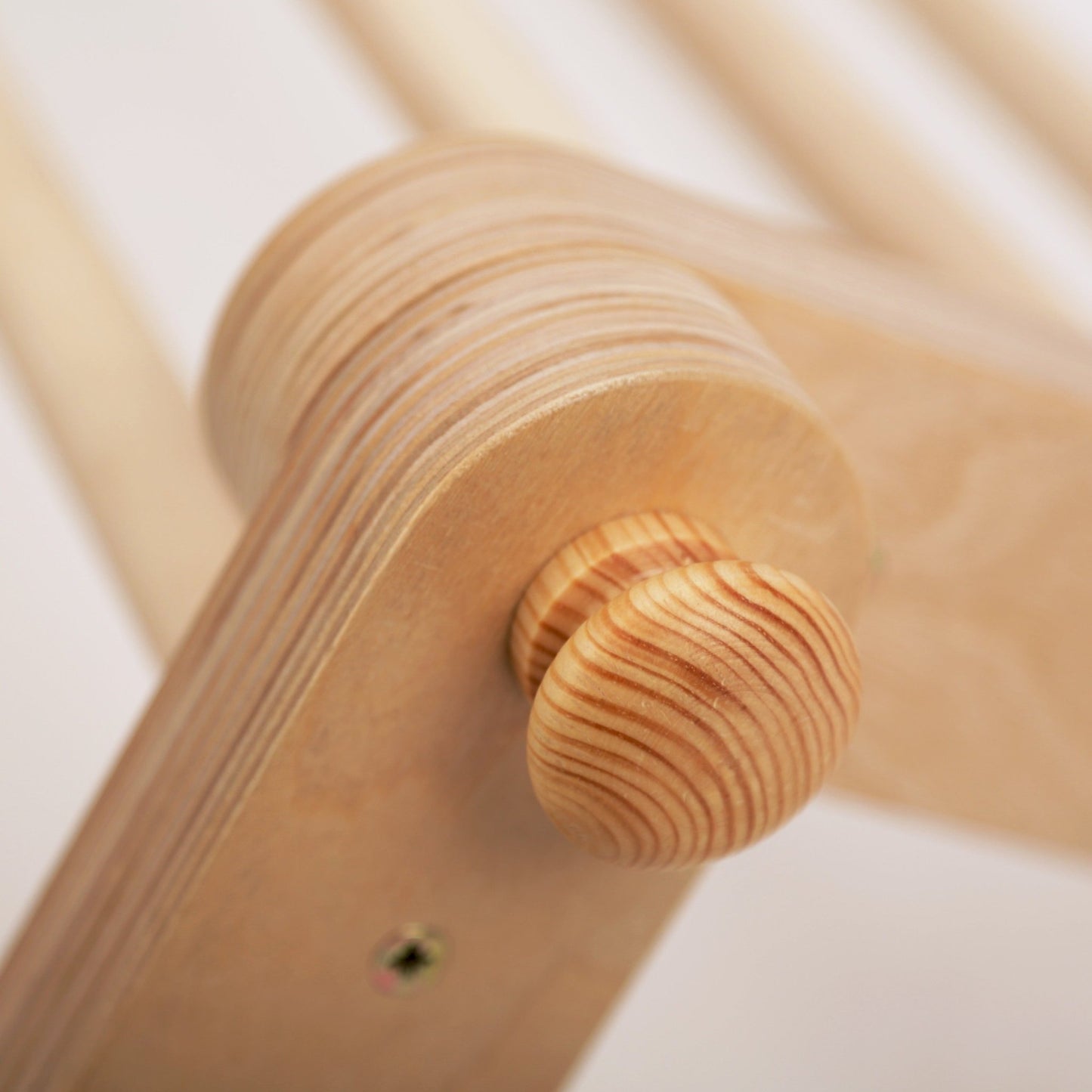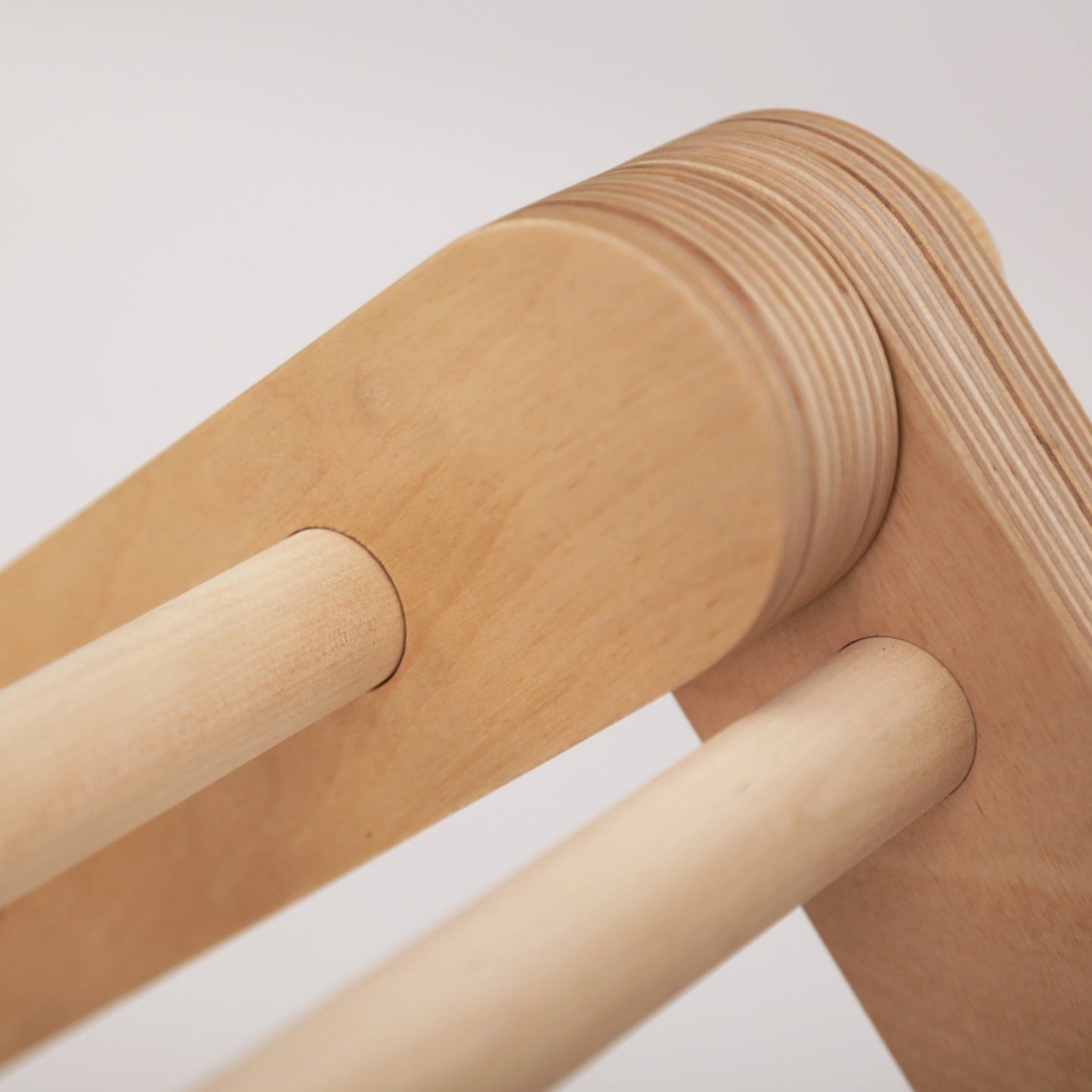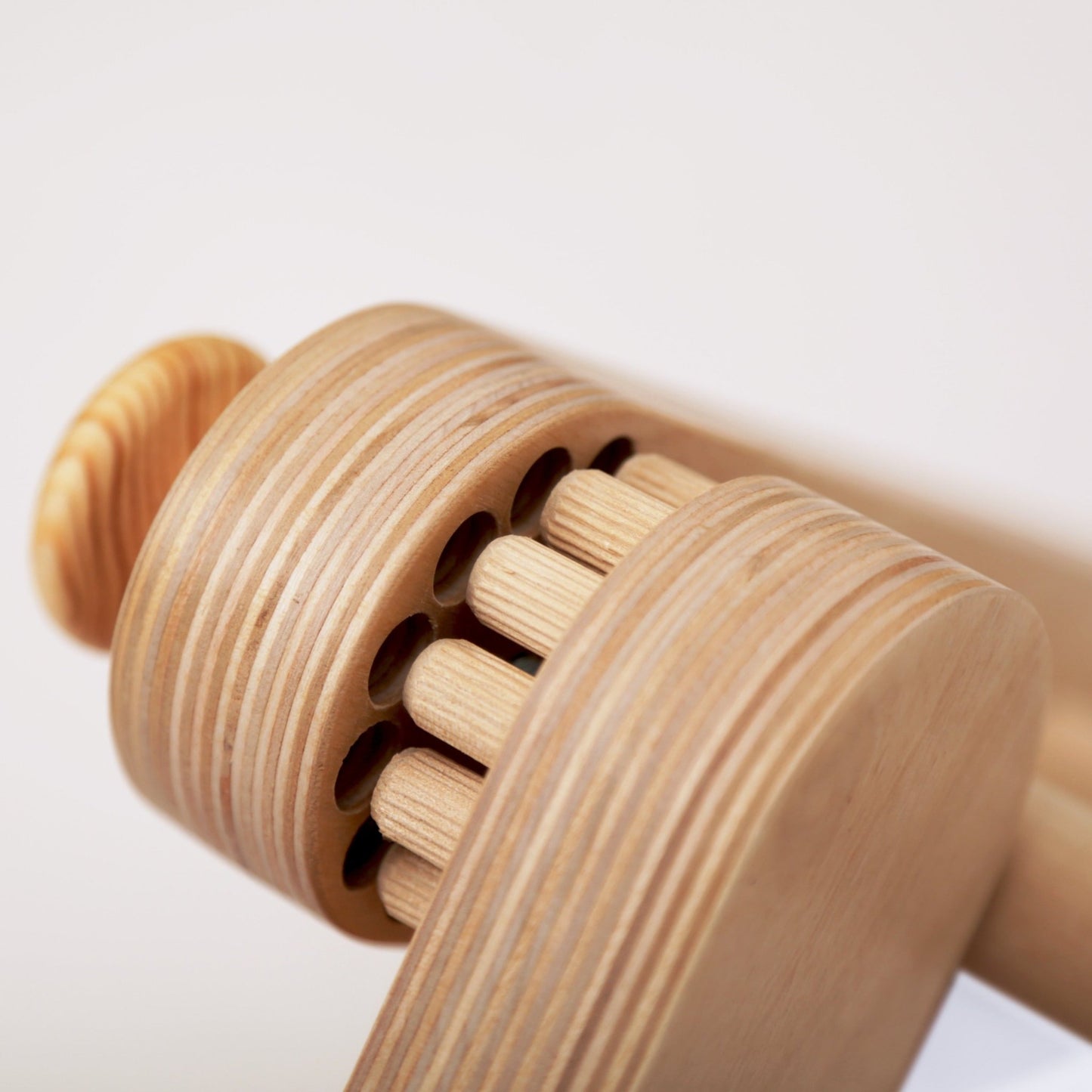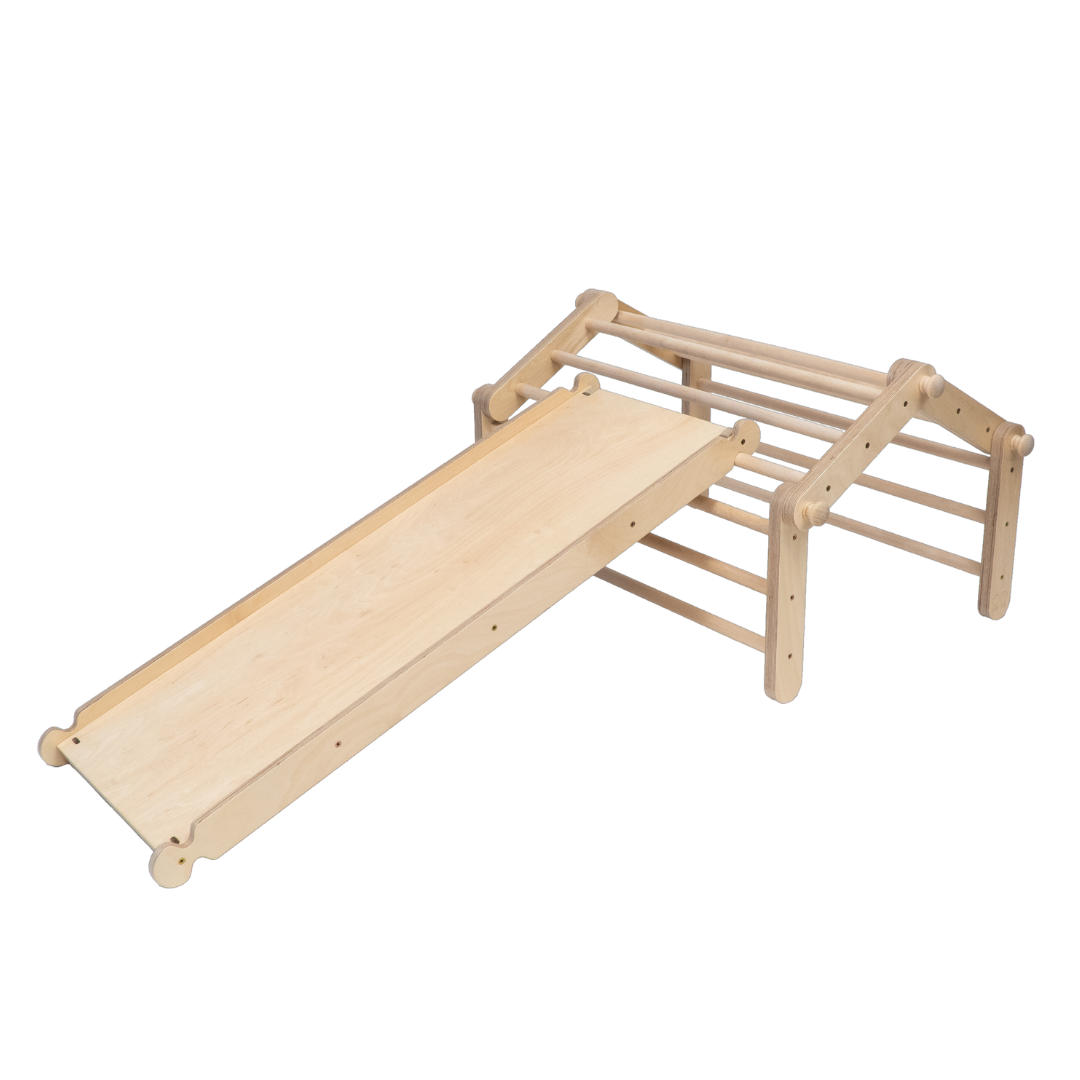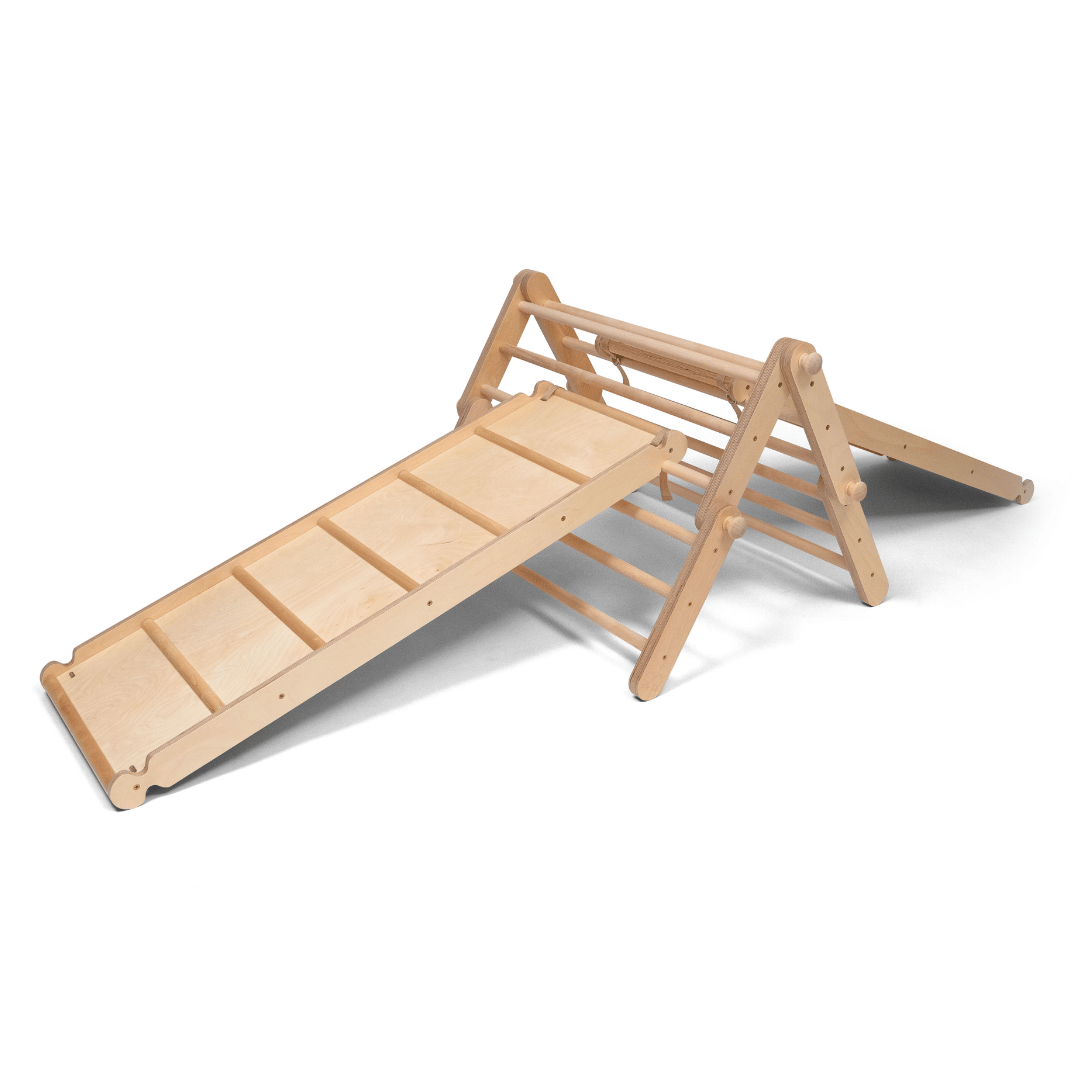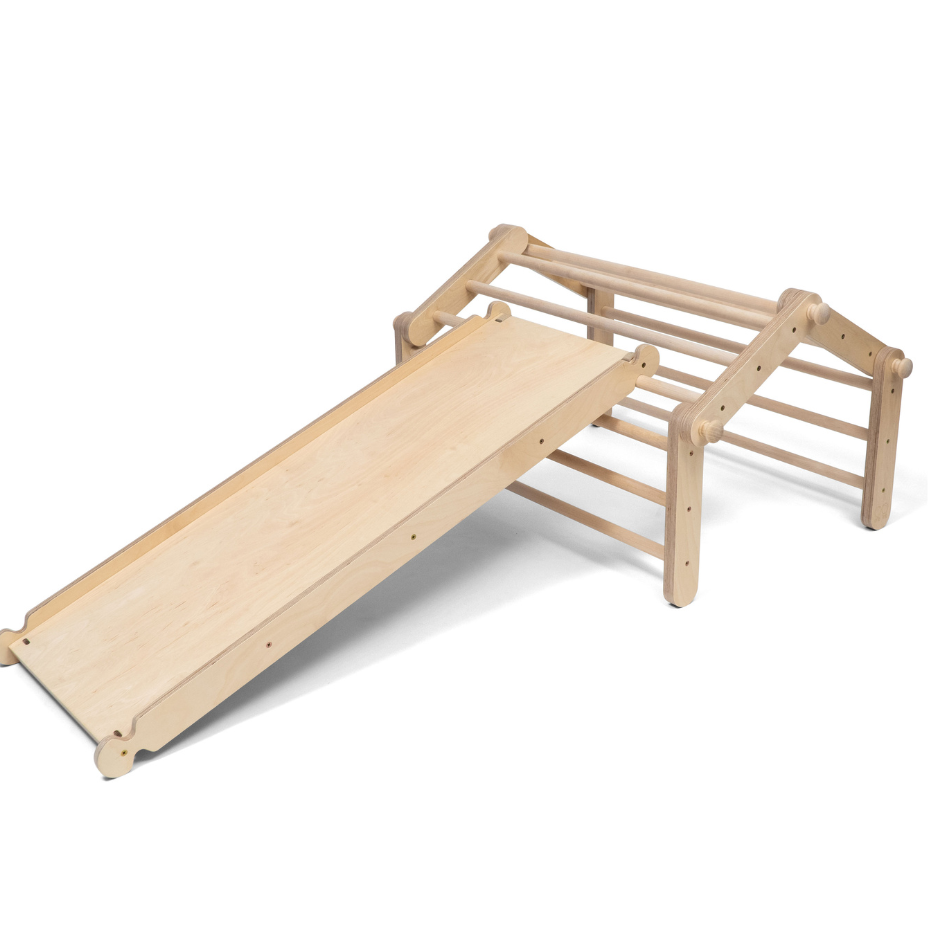Ette Tete has been created inspired by the principles and teachings of Emmi Pikler. She was an outstanding pediatrician and a specialist in childhood development, and children that she cared for were statistically healthier and stronger than average. Her caregiving and nurturing principles have spread out in the world and in Latvia (country of origin for Ette Tete) we are fortunate to have an amazing Pikler certified specialist Klaudija Hēla. We talked to her about her opinion on childcare during the global lockdown and also some useful Pikler principles that could be used on a daily basis. Her credentials can be found at the bottom of this article.
Estimated reading time: 5 minutes
Contents:
Observe and give time
Most childminding specialists tell us the simplest solutions for our child’s problems yet sometimes they are the hardest to do. One of those is to observe your child. Just observe and not intervene with his play, mumbling and minding his own business. Parents like to show them the right way to play with toys, the fastest path to their goal, and giving useful tips on how to be as productive as possible. That’s our mission as parents - to teach them how to live life, isn’t it? Totally true, and the best way to do it might be by cooperating with their developmental stage and where they are in their journey. And observing gives us the chance to see how they think, what are their wants, and at what stage they naturally are. One thing Klaudia and most toddler caregivers love to recognize is that toddlers live in the moment and they don’t have any challenges of the future. It’s an amazing thing that we can learn from our children - being fully present. Observation will give you a lot of perspective on how to talk with them and you’ll most likely understand what they need in the particular moment of their development.
Child-friendly environment rules
The general rule is that their environment has to be safe to explore and play in. Then comes the part of the Pikler playroom design that is based on two simple truths - children are small and they need order.
The first one is obvious and a basic principle to consider - have furniture and all necessities in an approachable height for small children. This includes tables, chairs in their height, helper towers to access the higher ground, coat and towel hangers at their level, and also kitchen supplies where they can easily get them. That being said, if it's possible, allow your toddler to do all activities while standing - some active toddlers like to draw, eat and do all sorts of things but their newly developed movement skills want to be used.
Also, consider that their small fingers can’t grasp small, delicate objects as well as we do as they still need to develop fine motor skills, so provide large chalk, not so delicate cups, and larger socks that they can practice on.
The second one is order. They don’t like chaos similarly like we don’t - chaos around means chaos in mind. Unfortunately for small children, it’s very hard to be on one task at a time for a long time, and being orderly for themselves is not in their nature. Klaudija Hēla says that you can start expecting some arranging on shelves at the age of 3-4. Some kids start sooner and then leave the activity. And until they are truly ready to be orderly by themselves, we need to teach them, show by example and help them to make order until they can create it on their own.
Communication
Children learn to speak and communicate in their family. This is the secondary way of teaching them (first being our good or bad example), and later it becomes the dominant way of learning for them. At an early age, it’s crucial to talk to infants and toddlers as much as possible. Not only do they learn to speak properly from their parents, but also they learn about the world order and calm themselves when you’re telling them what to expect i.e. that you’re going to change the diaper or put on new clothes. This is where empathy plays a big part - try to imagine their world with everything that they already know and probably most importantly what they don’t know and understand yet. For example, you might say that we’re going out “in 10 minutes” or “soon” - this means exactly zero to them because they don’t understand how time or clocks work. Also we adults have problems figuring out what “soon” means. Here comes in the sequence of actions - what follows what.
Also, one piece of advice on how to talk and understand their world view is to do the Sportscaster technique - observe and comment on what’s happening to them and on their emotions “You fell down and your knee hurts.” And this is the part where you shouldn’t switch their focus with a toy, cars outside or your cat. Their emotions are important, meaningful, and should be recognized, and this is a straight way to teaching emotional intelligence.
Routine, stability, consistency - predictability
During the global lockdown, some kindergartens were open in Latvia and Klaudias was one of them. Despite everything that’s happening around them and to their parents, Klaudia says that she hasn’t seen any changes in children in her group because of one crucial and most important aspect for children feeling safe - a routine that wasn’t broken for them.
Children need their routine to help them predict what’s coming and will happen to them. This creates a feeling of safety and calm. As calm as an emotionally overwhelmed toddler can be.
In Klaudijas groups she teaches the morning routine also to parents so that they can provide similar activities at home and every caregiver uses the same methods. And children are wired to this routine - when they come through the door, they will hang their coat, take off shoes, go wash their hands, have a couple of minutes with their parents and then go to activities they choose. Klaudija tells them beforehand when it will be time for them to go outside, have meals, and bedtime. And it doesn’t change day by day, week by week as all changes are a stress for children - a new boy in the group (it’s also stressful for him), new toys and new activities.
Conclusion
Trust yourself and remember that you already are the best possible parent for your child. The hardest thing to implement for modern parents, as Klaudija mentions, is to trust their gut feeling. We spend so much learning the best ways to develop healthy, smart and successful people, and we see so many different methods to do this. Klaudija says that you have to remember that no matter what you teach your children if you love and respect them, you already are the best parent they could have. And nobody in this world knows your child better than you. If you spend time observing your child and get to know them as much as possible, you will know for yourself what’s best for them.
Klaudija Hēla:
Physiotherapist,
Pedagogical manager of the Mothers' Club pre-school,
Pikler pedagogy specialist with a medical background,
A mother of four and also a respectful grandmother.

